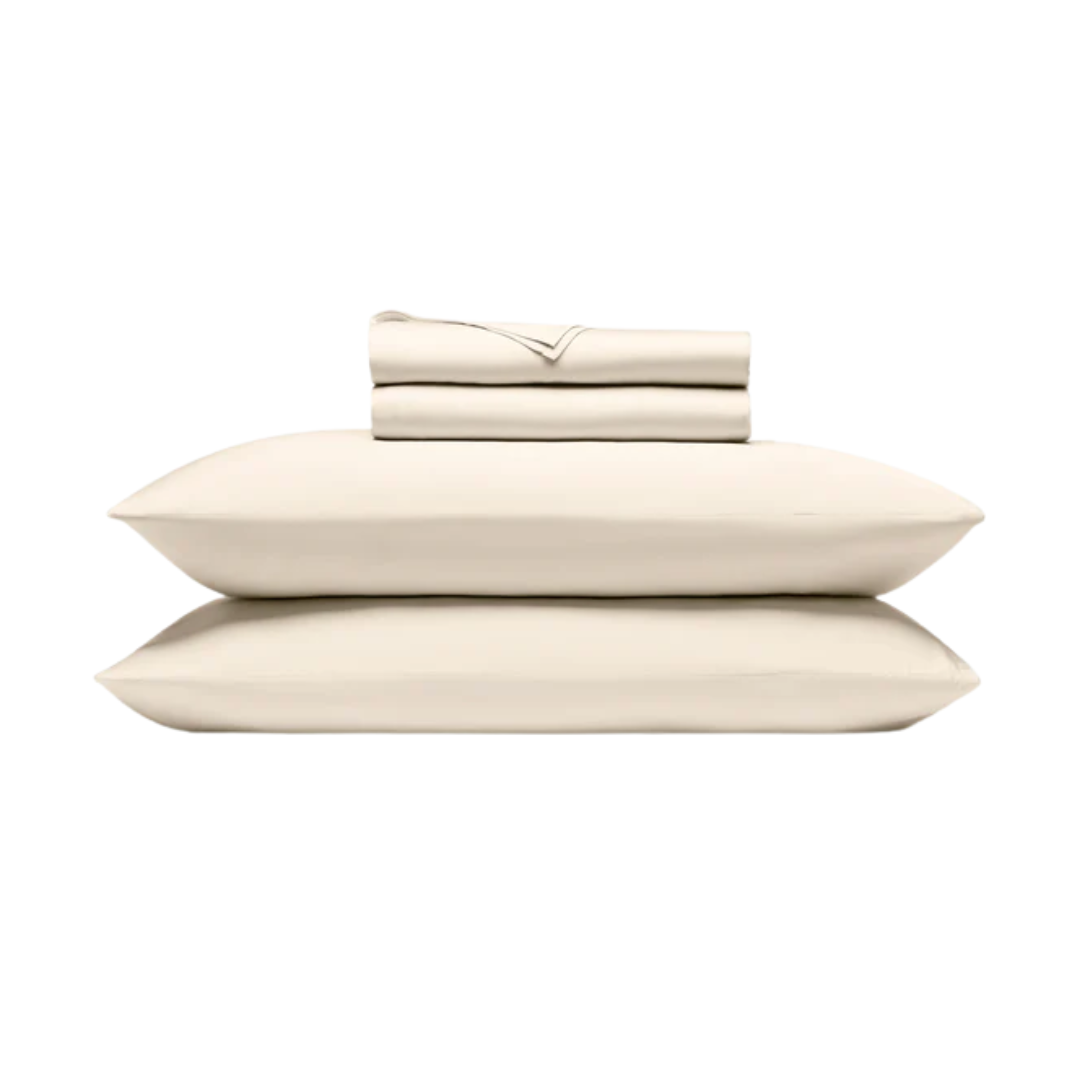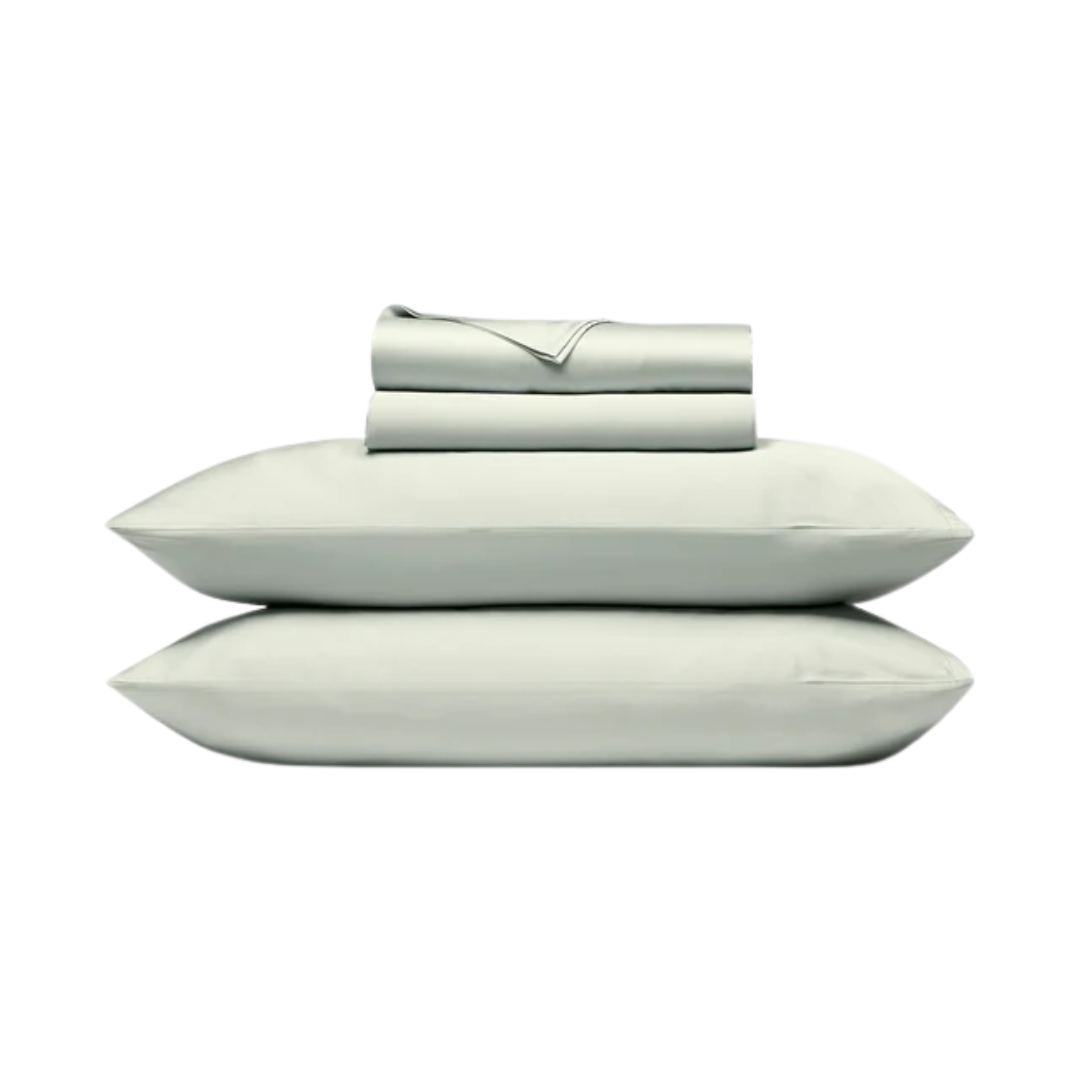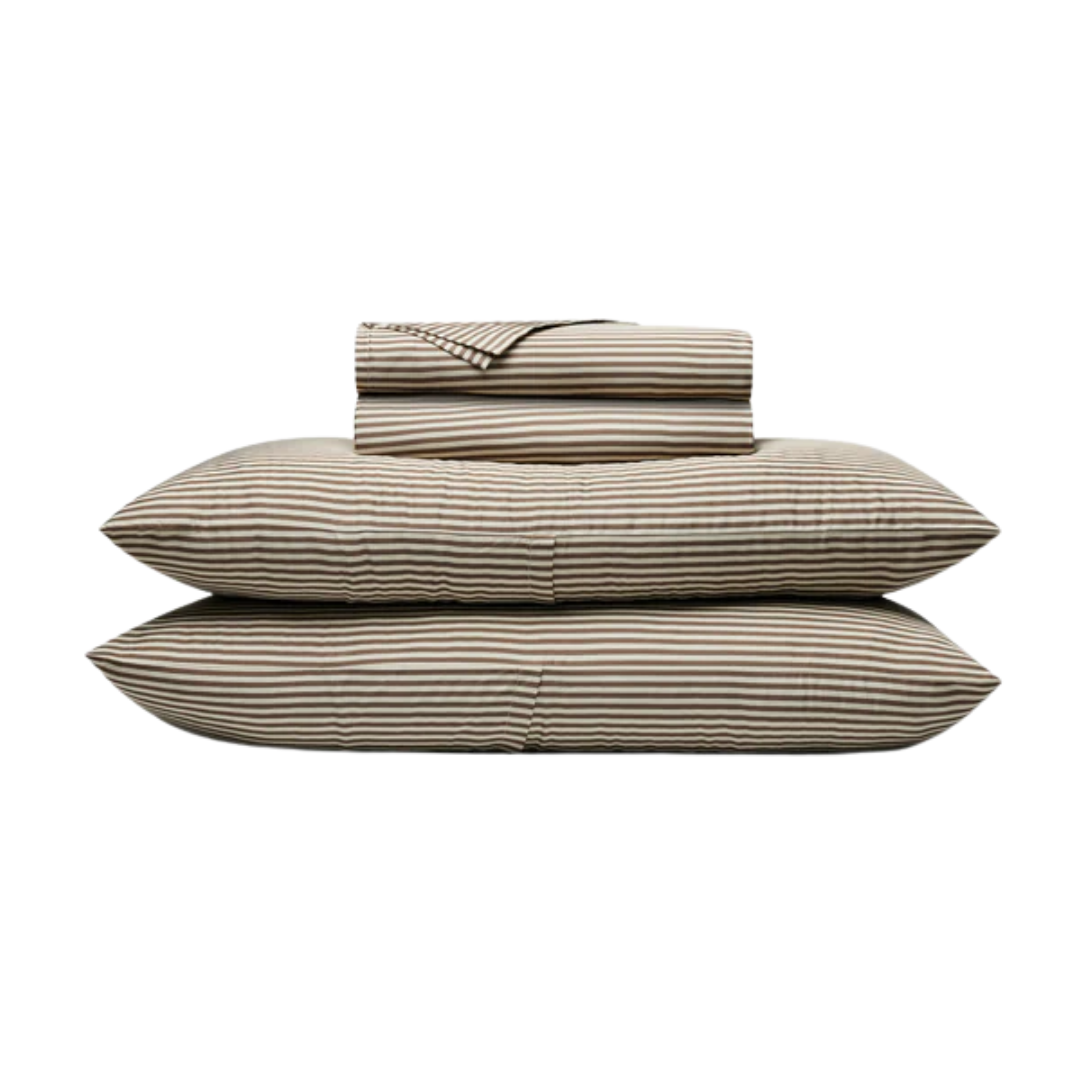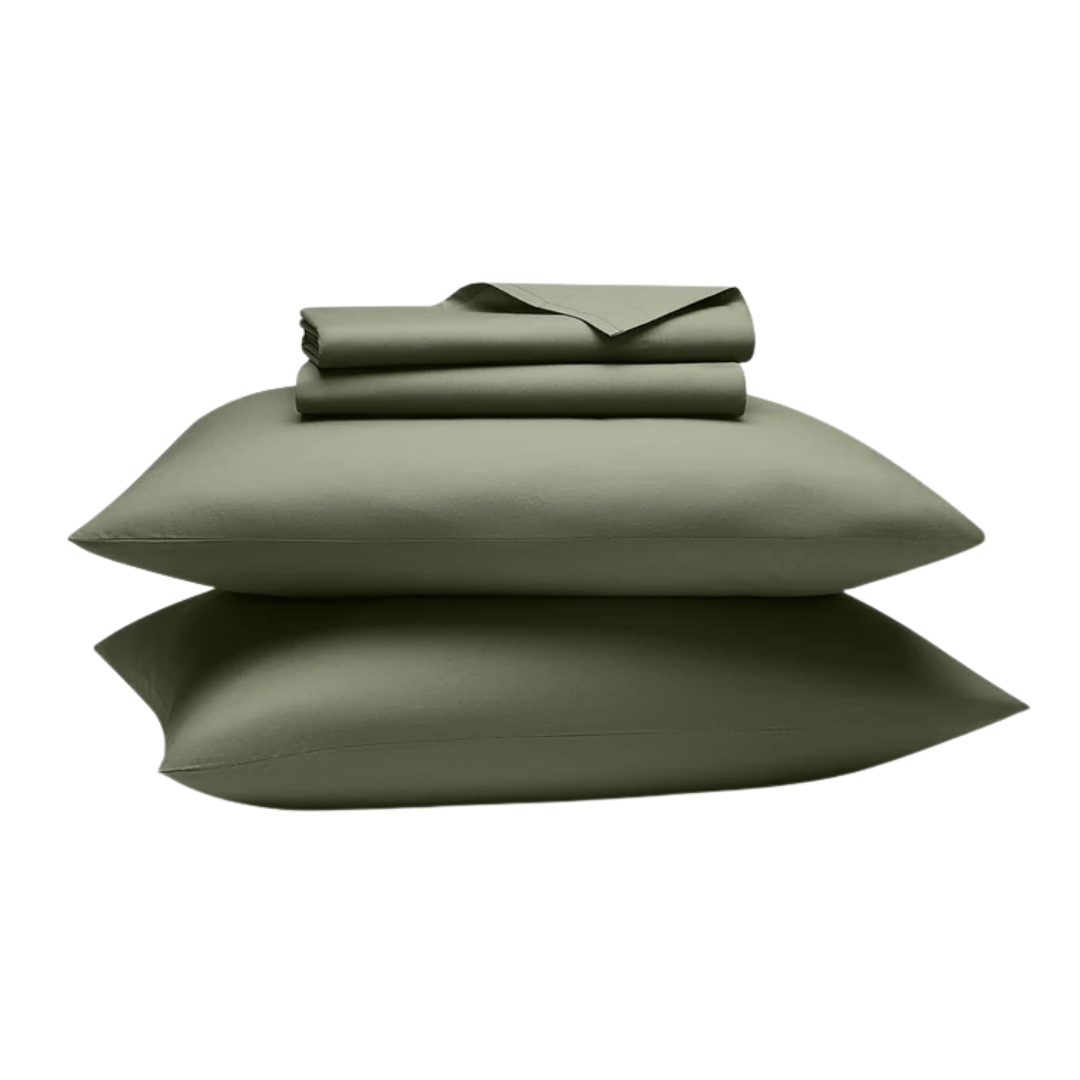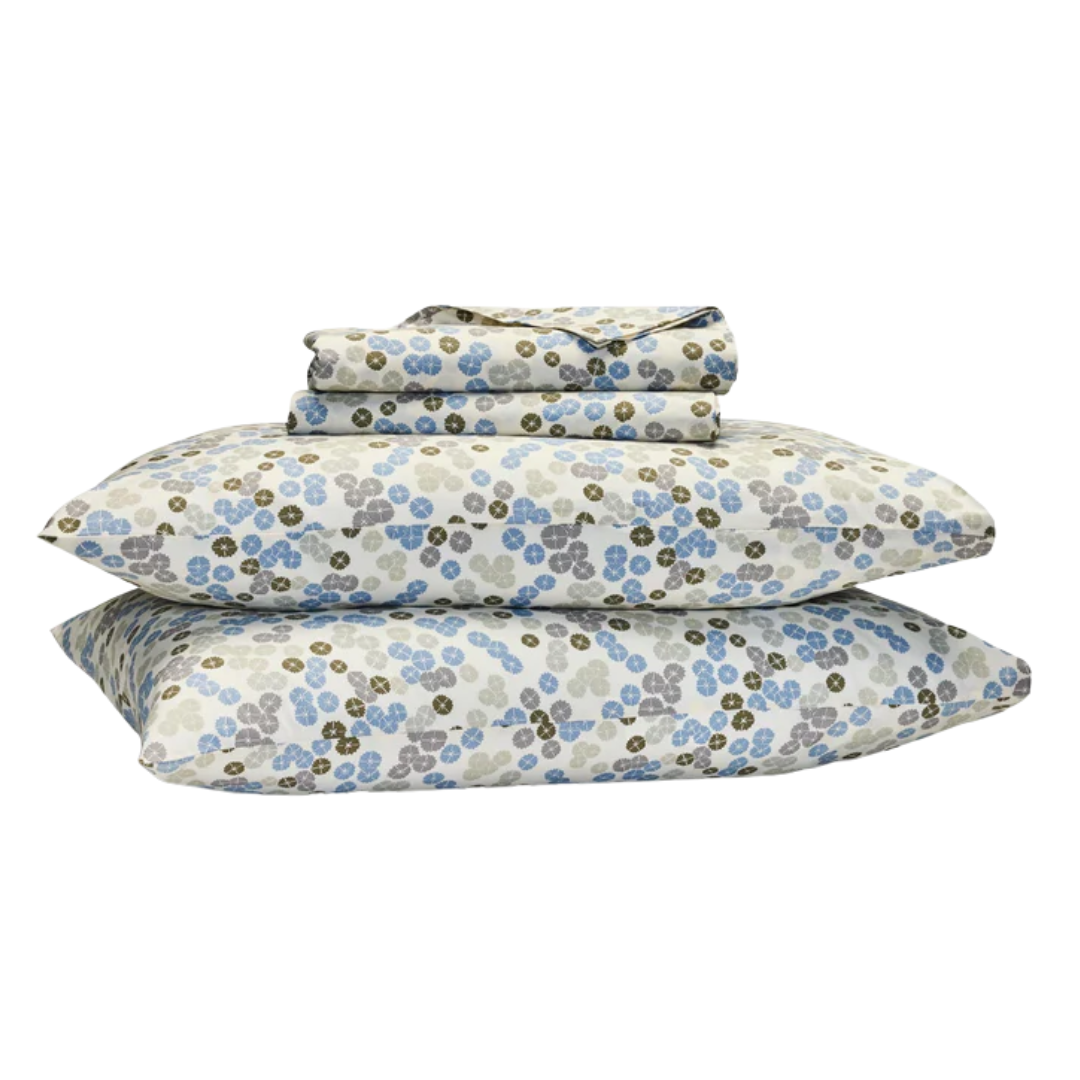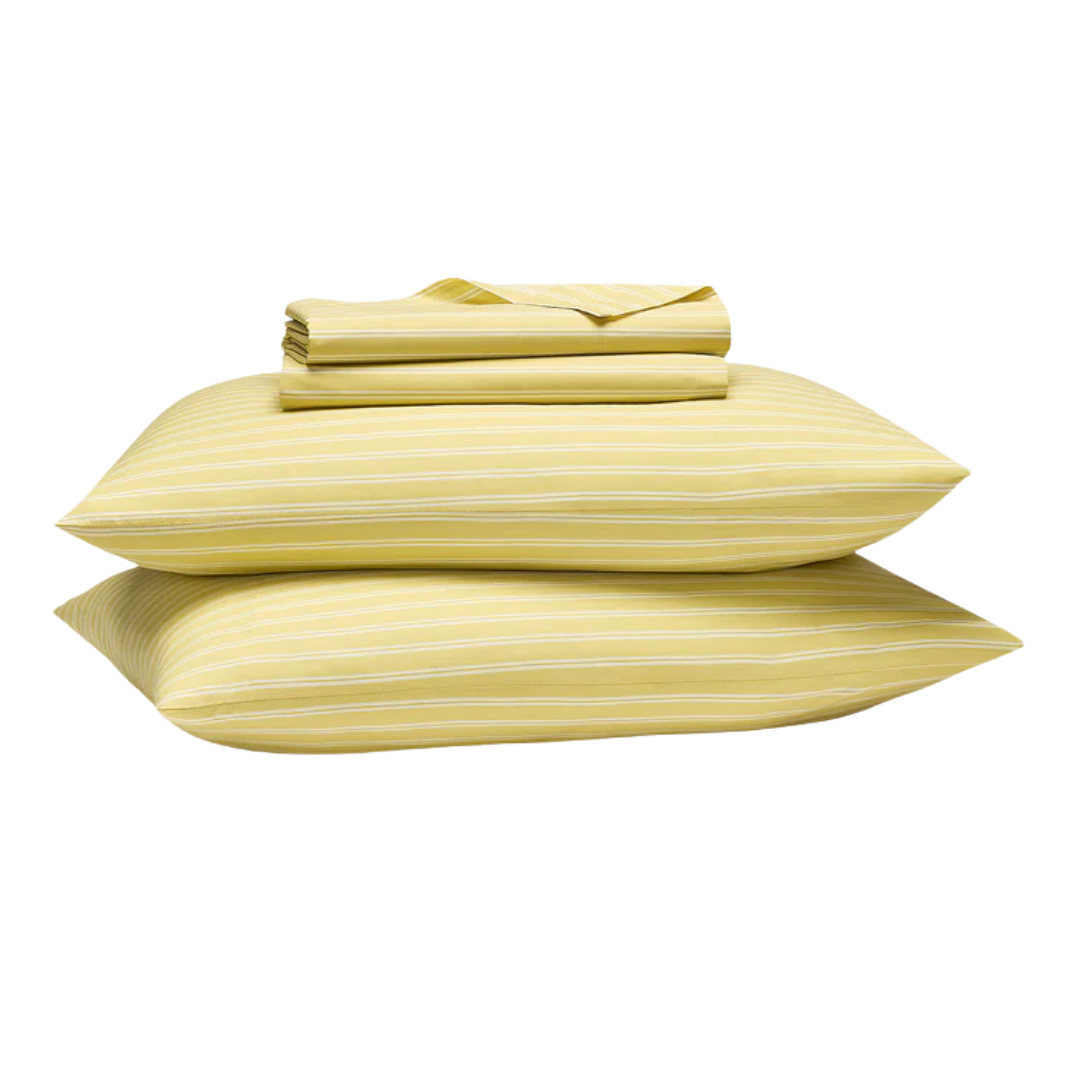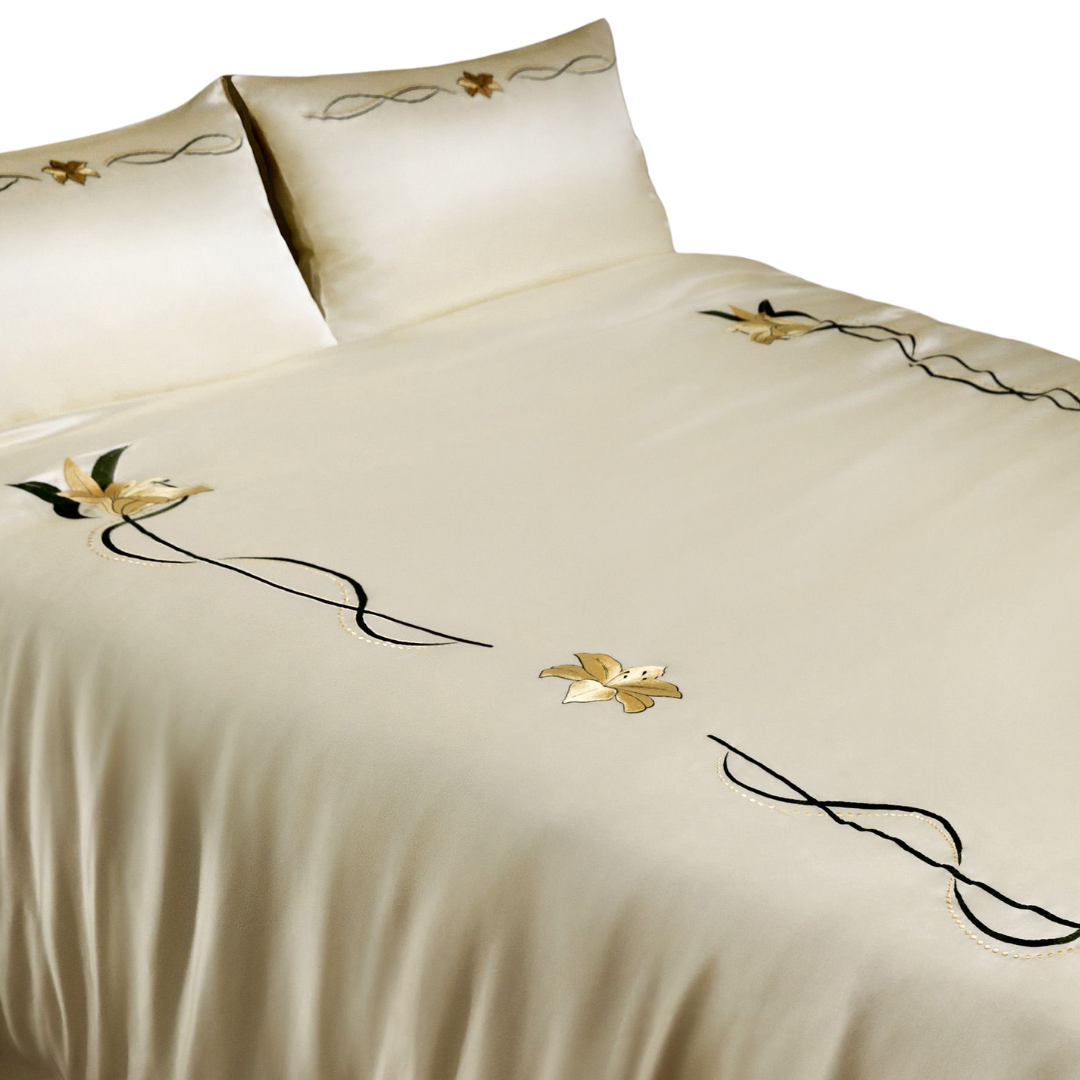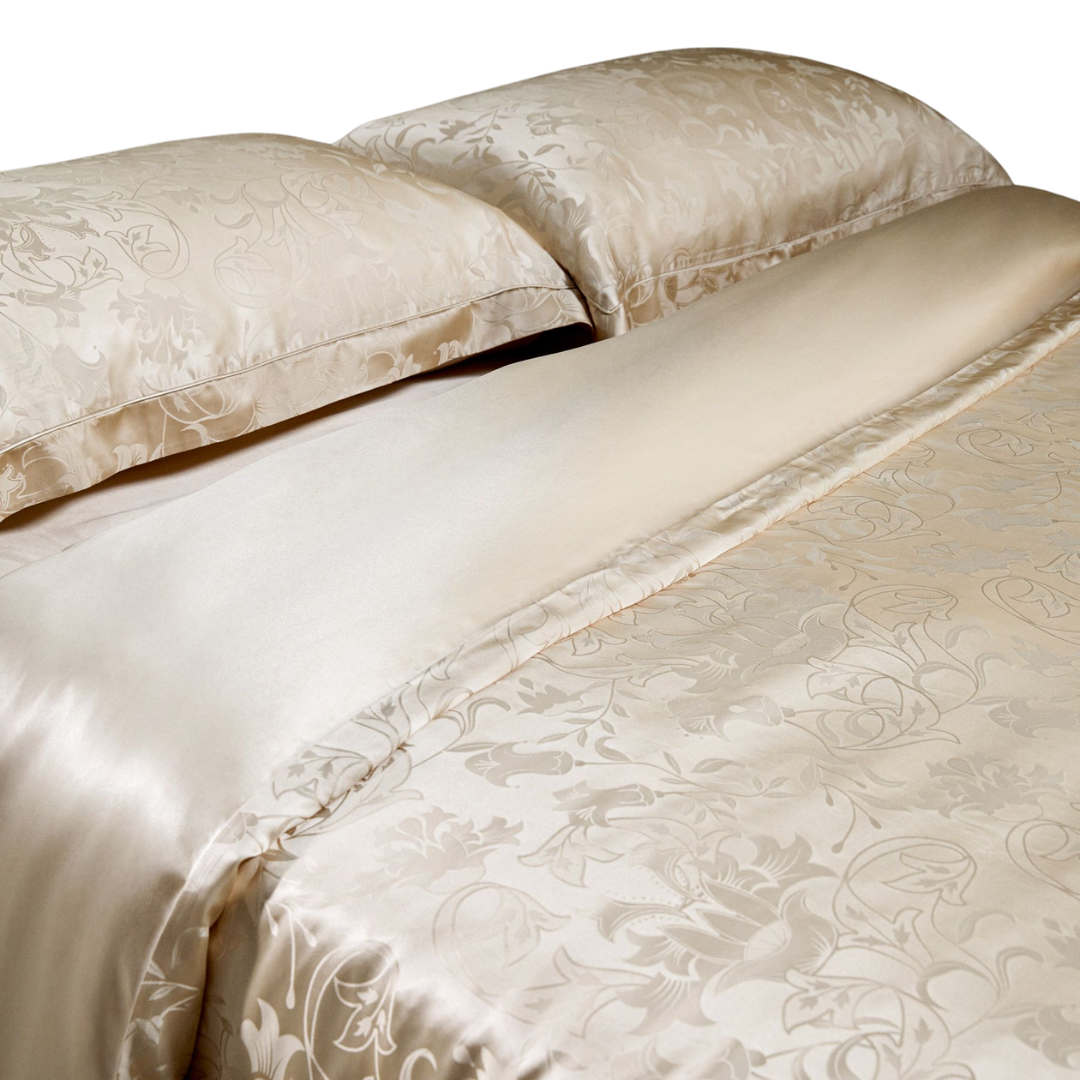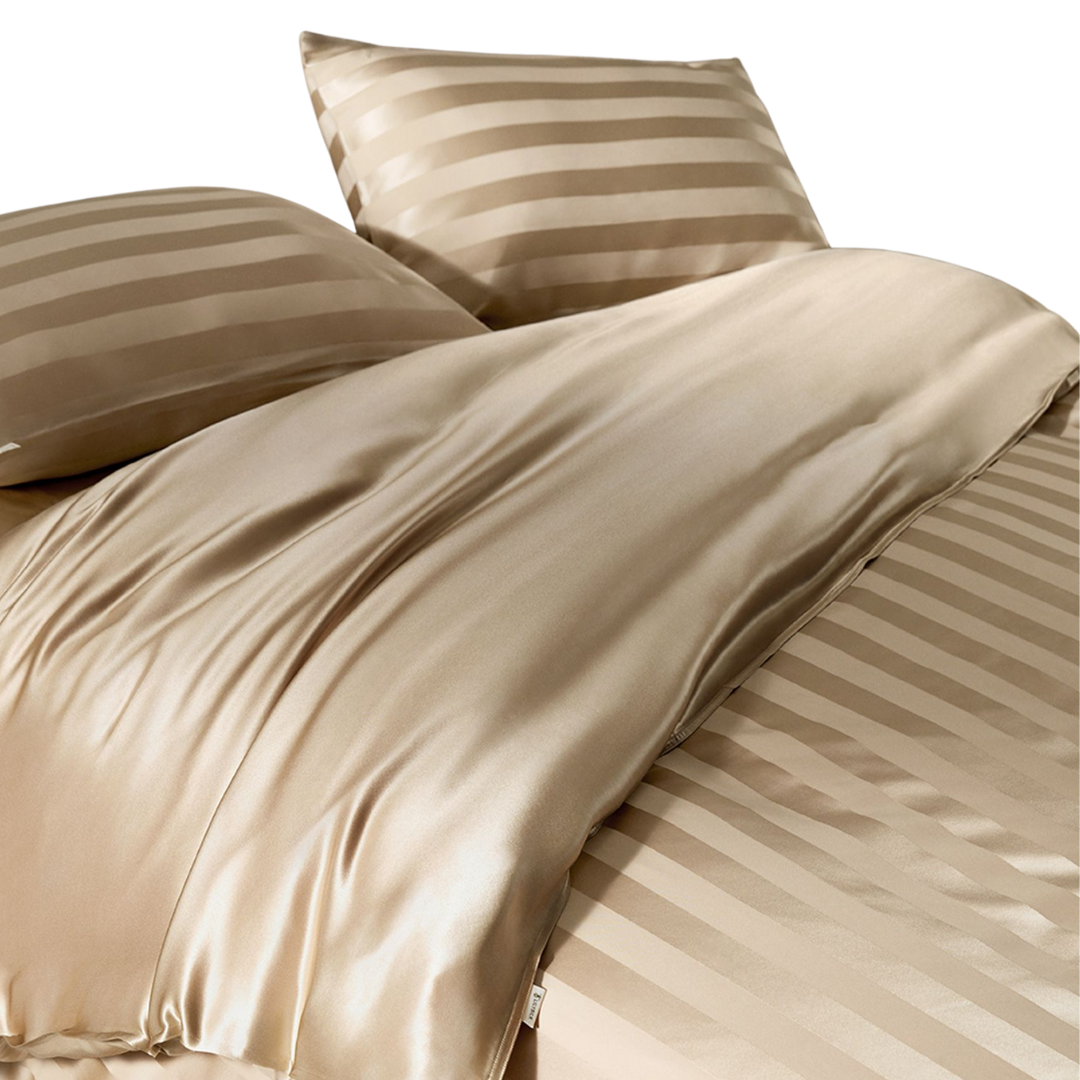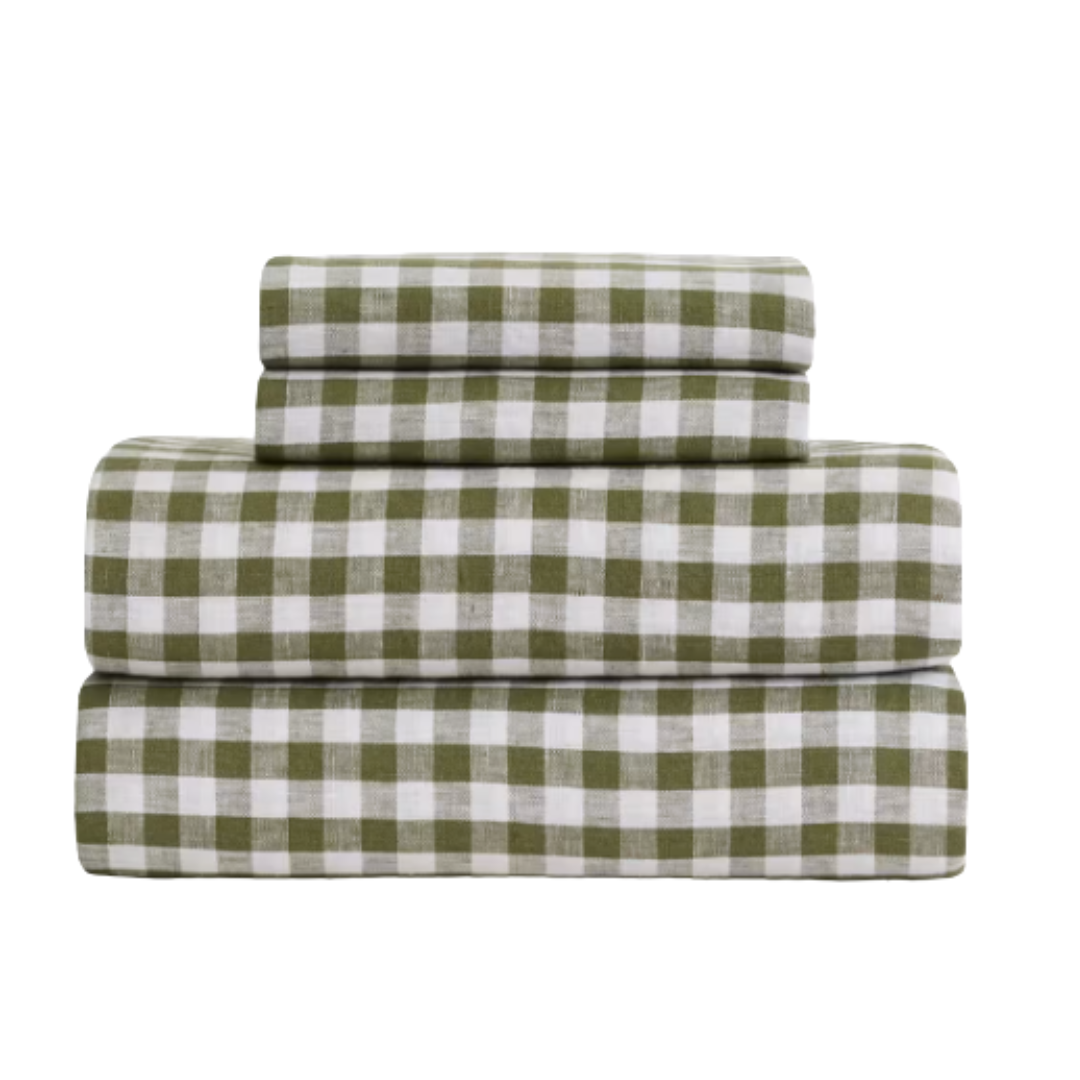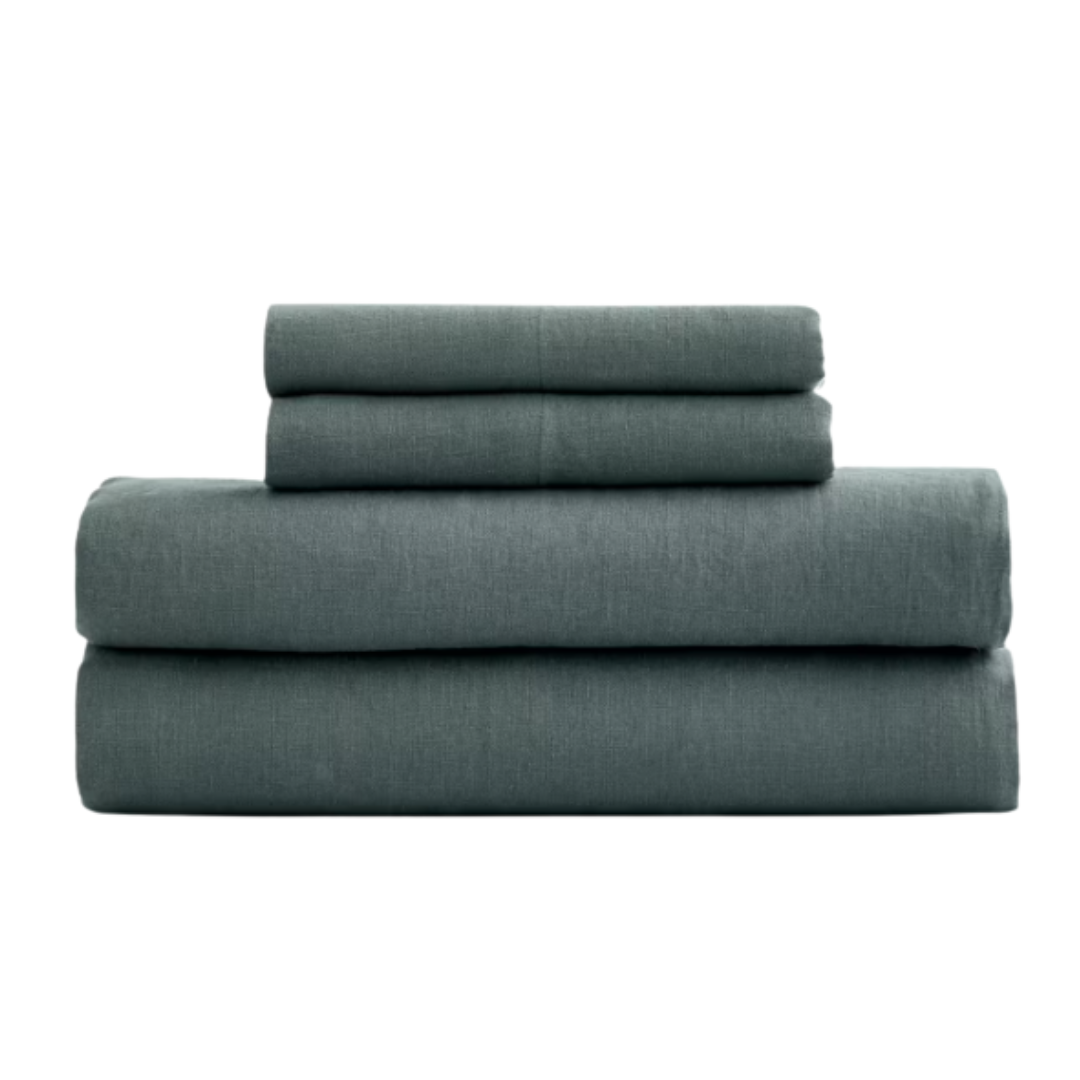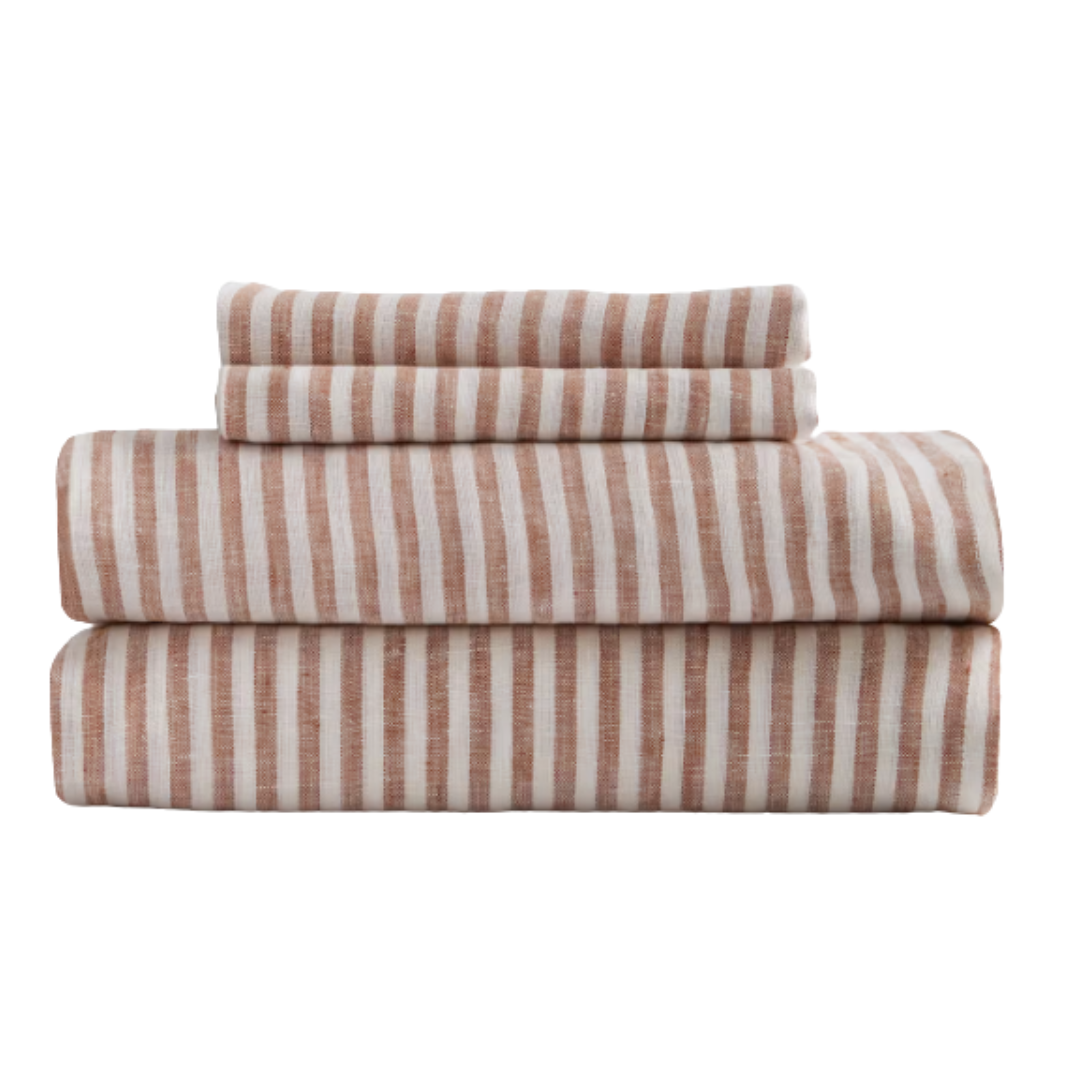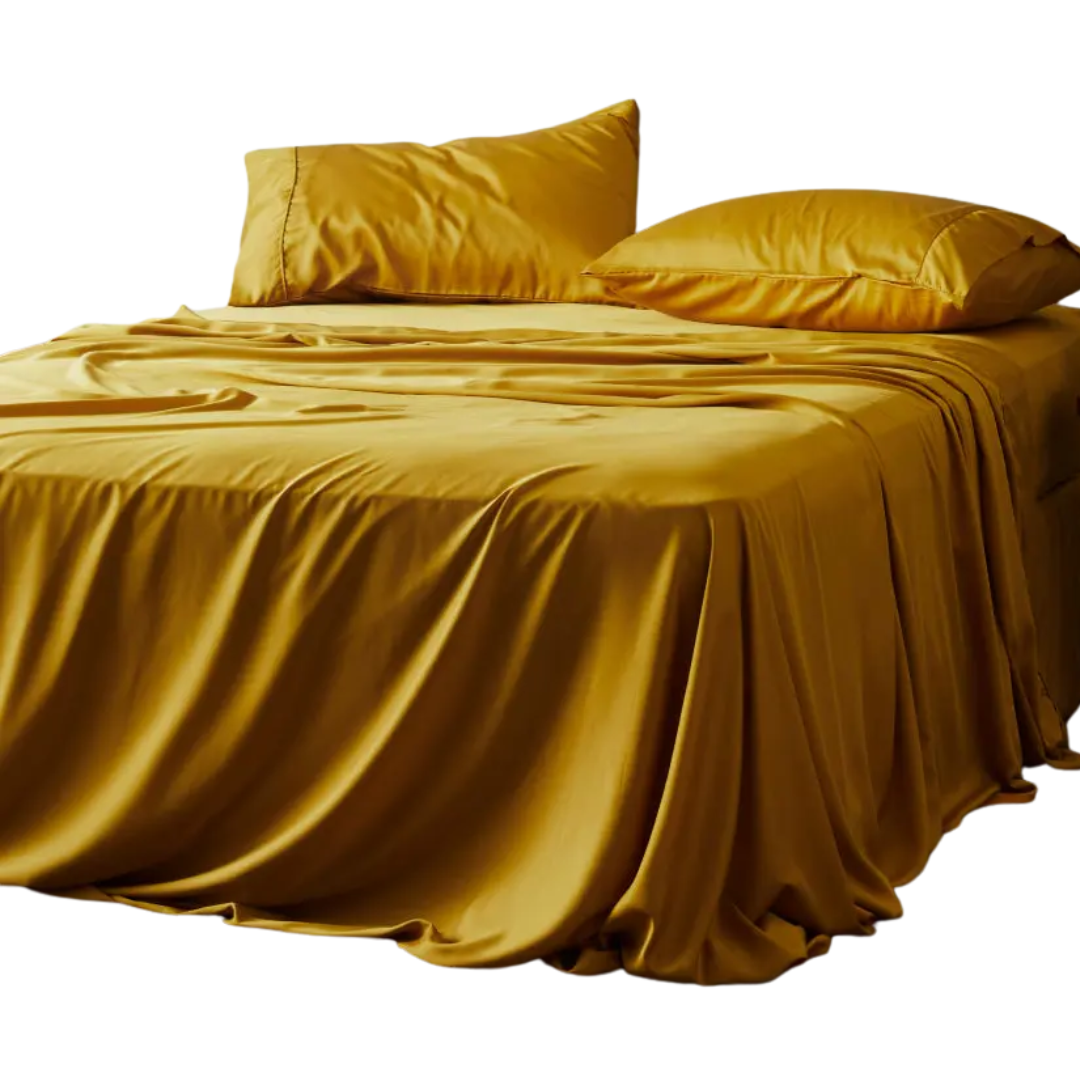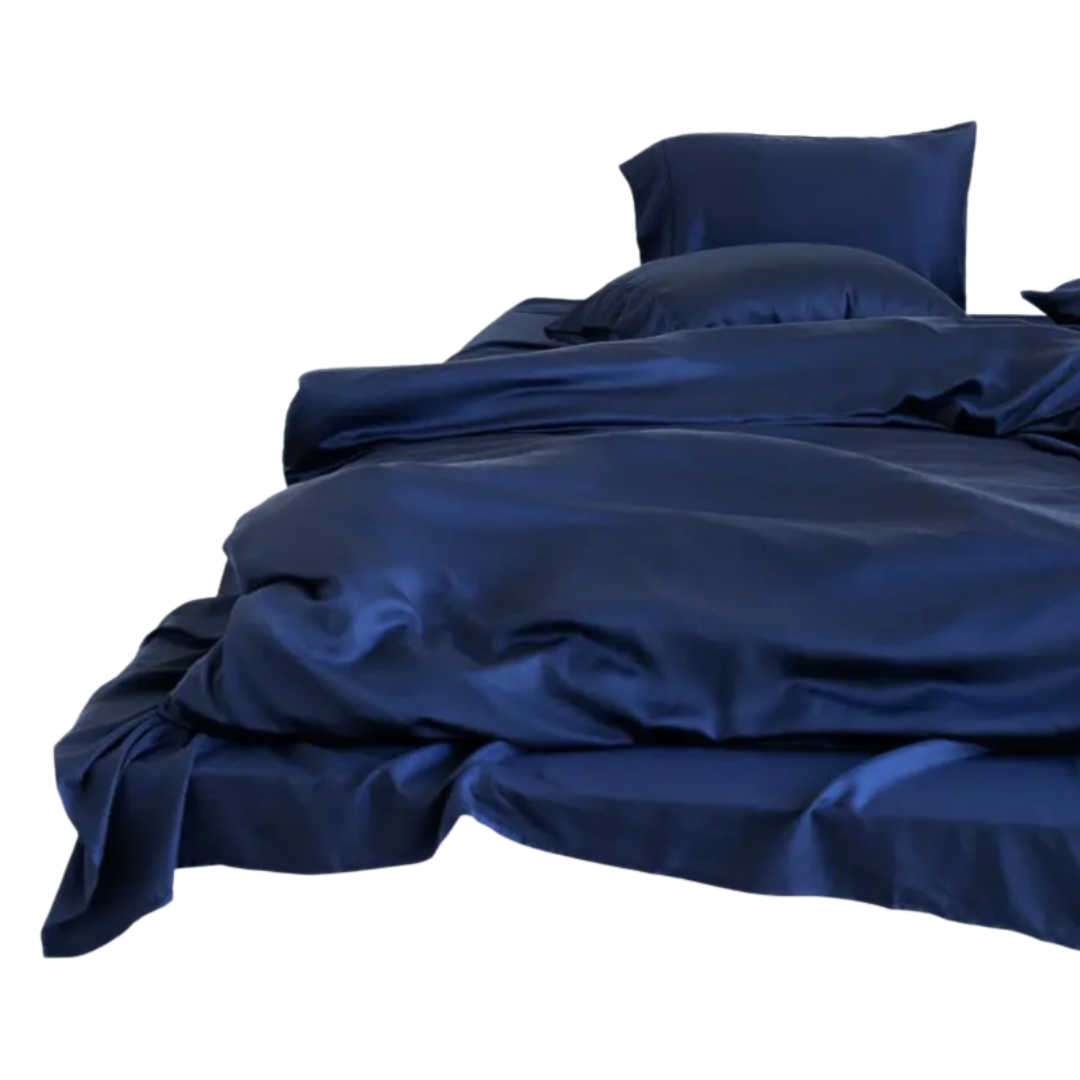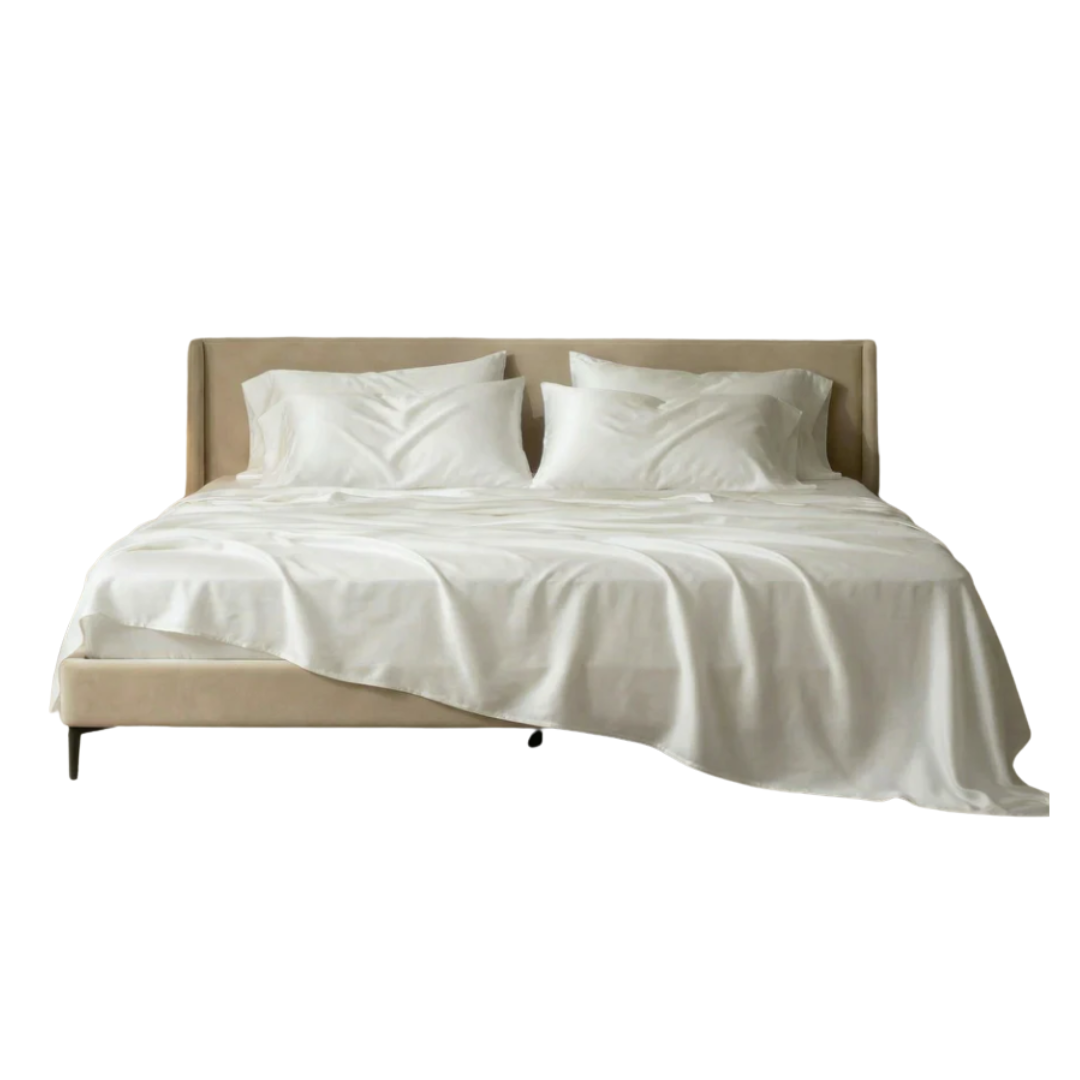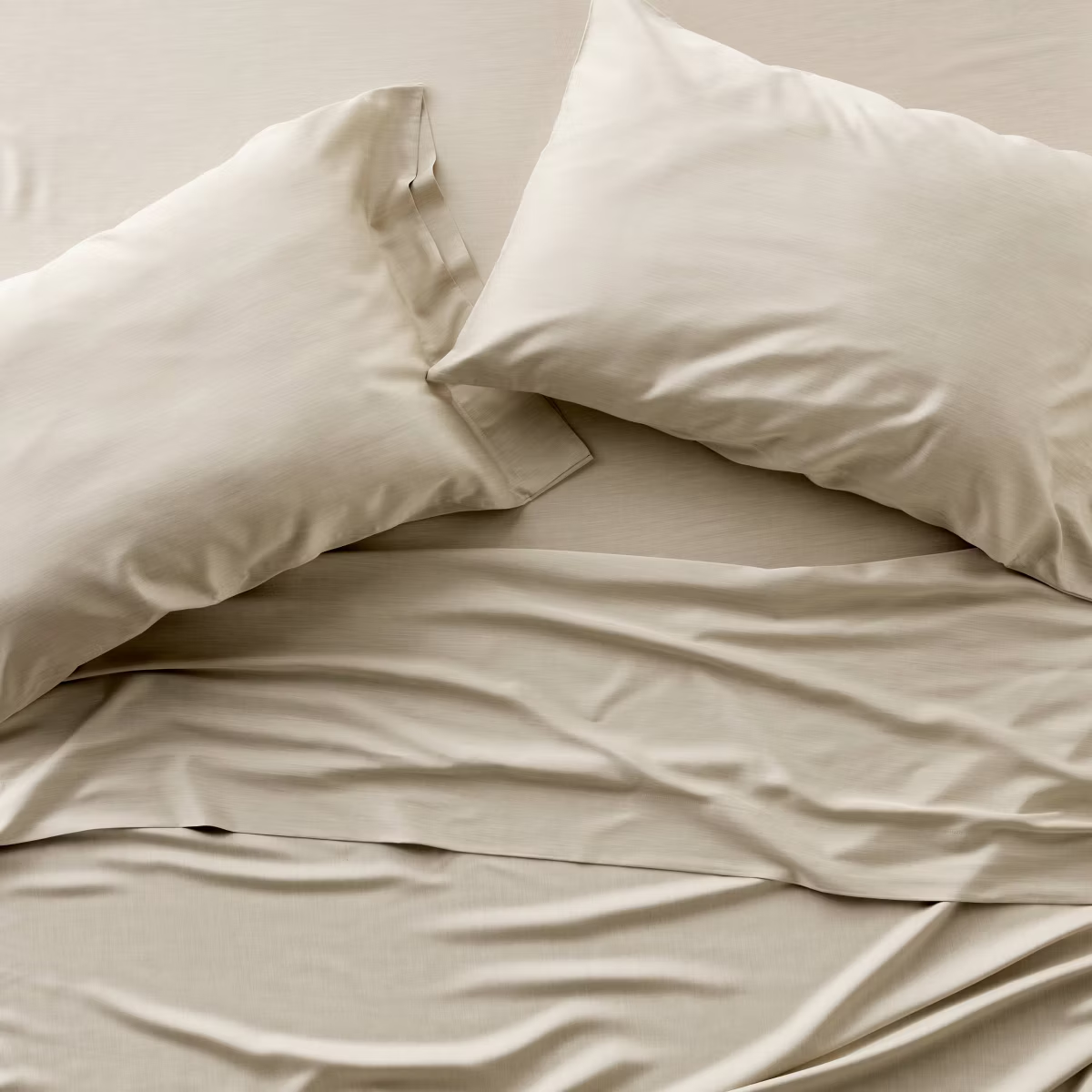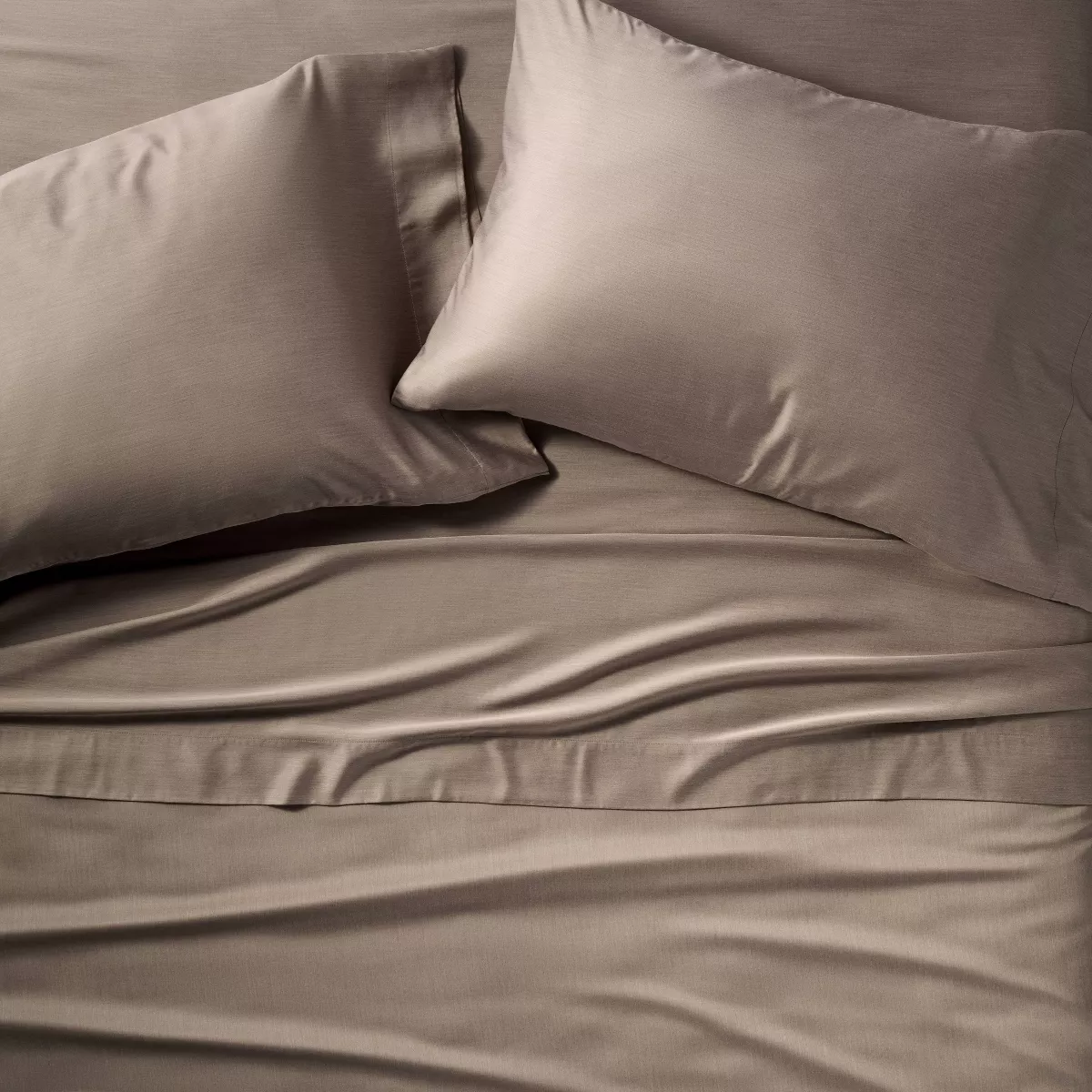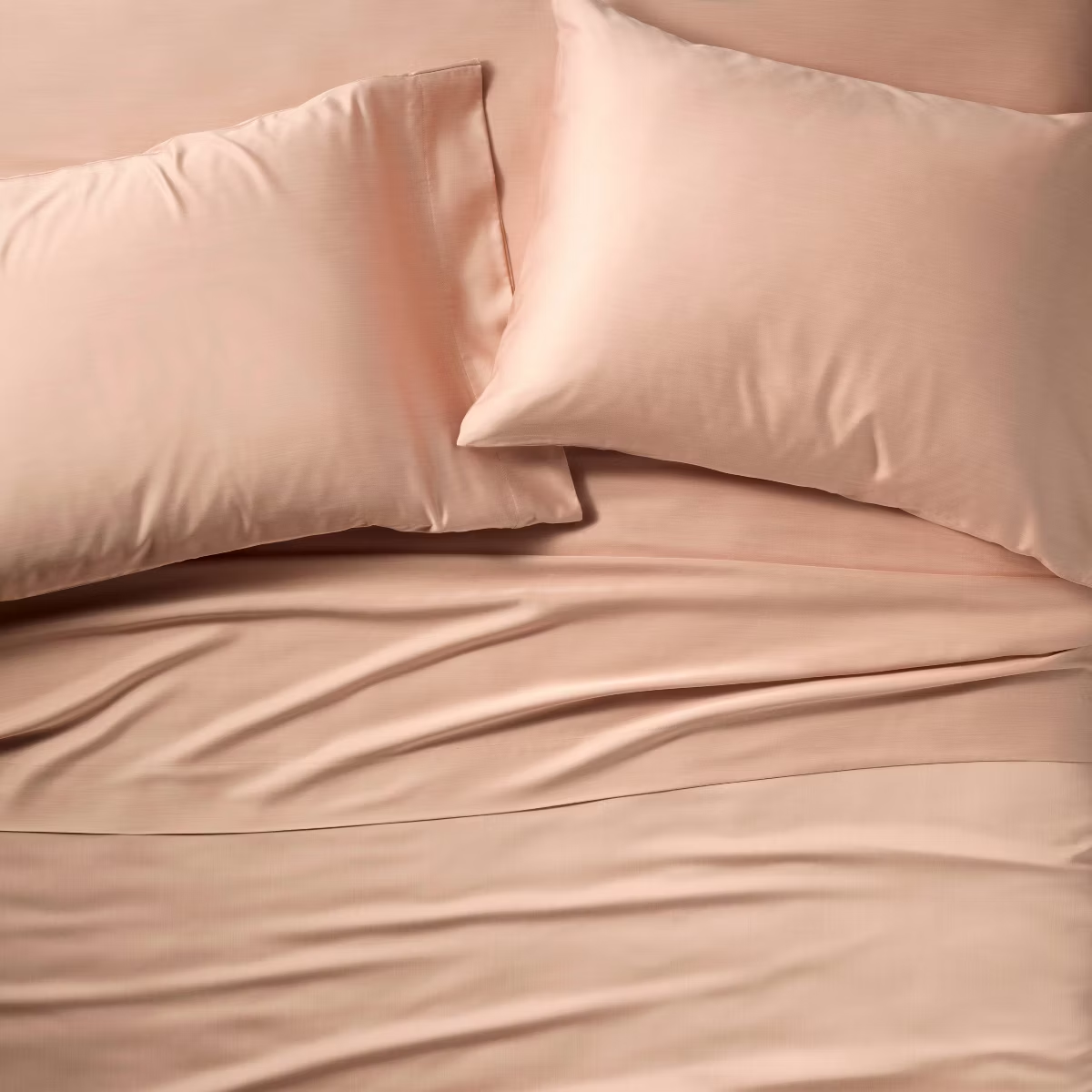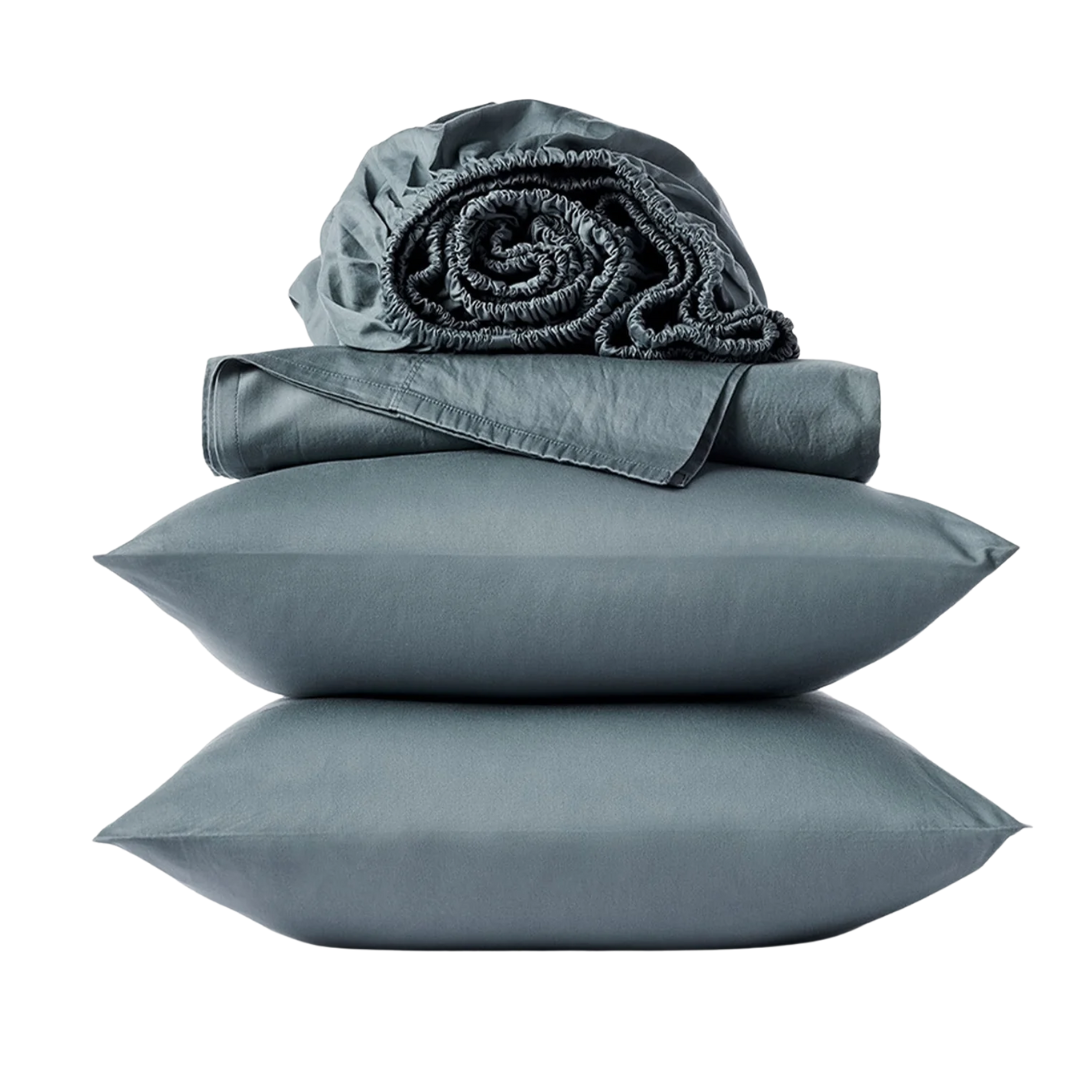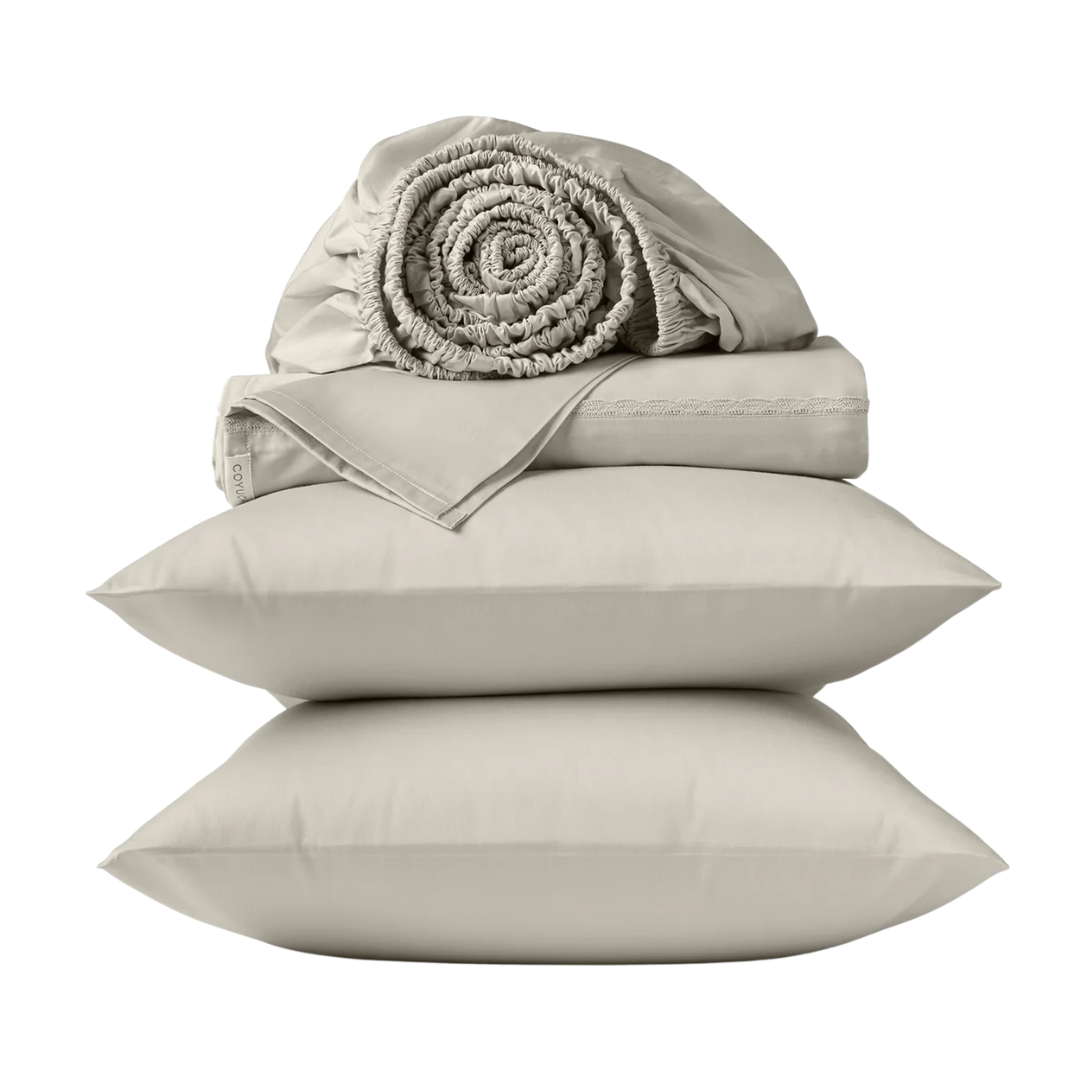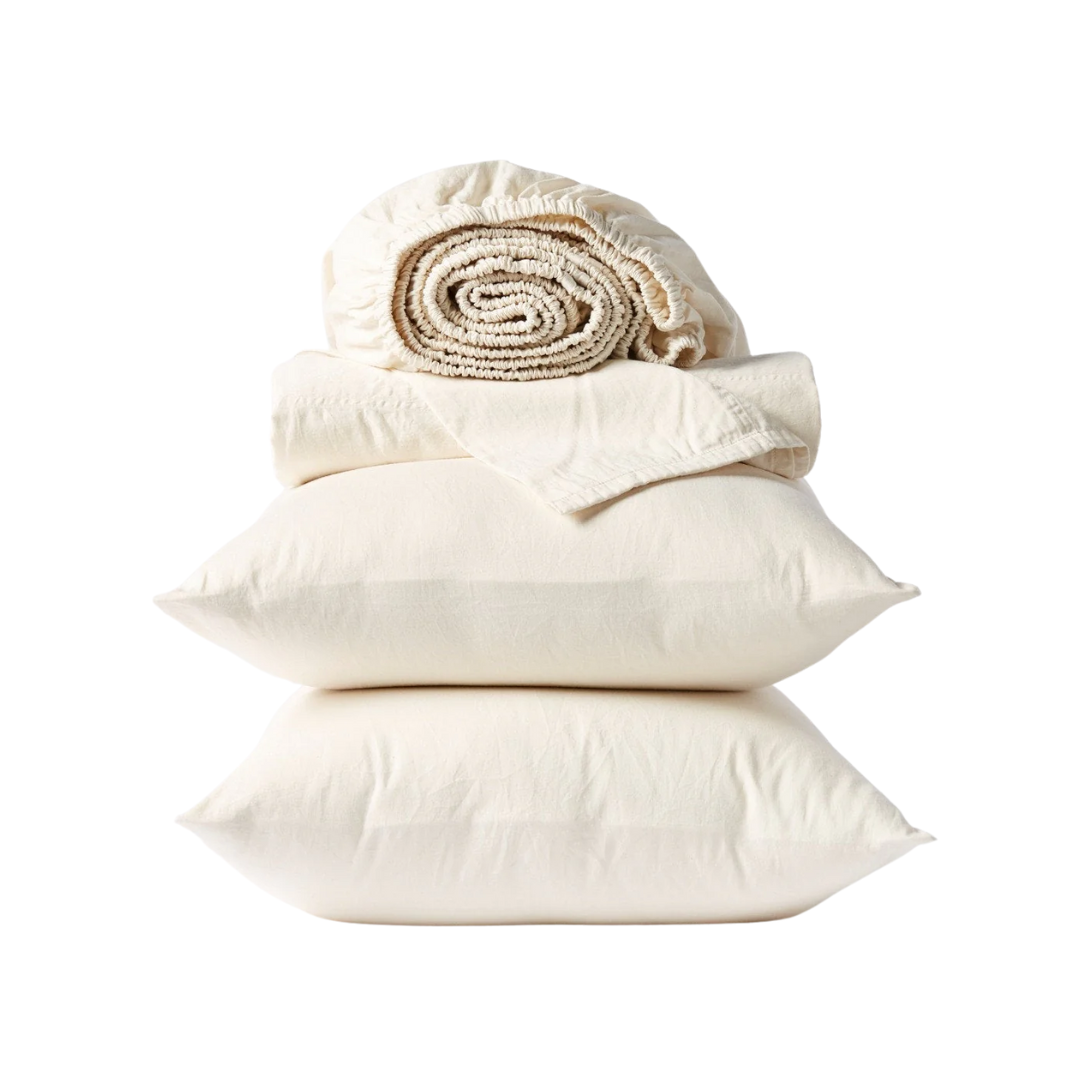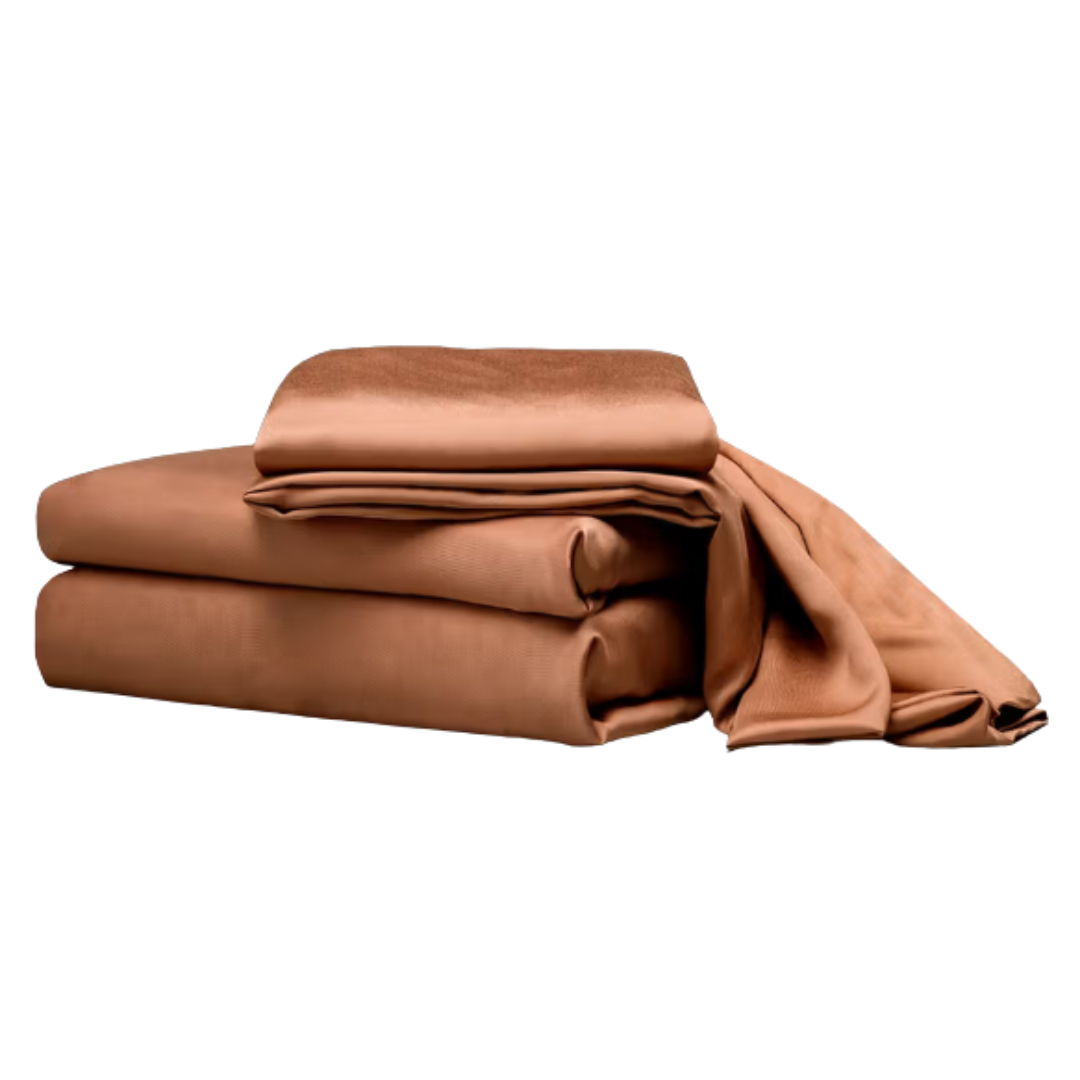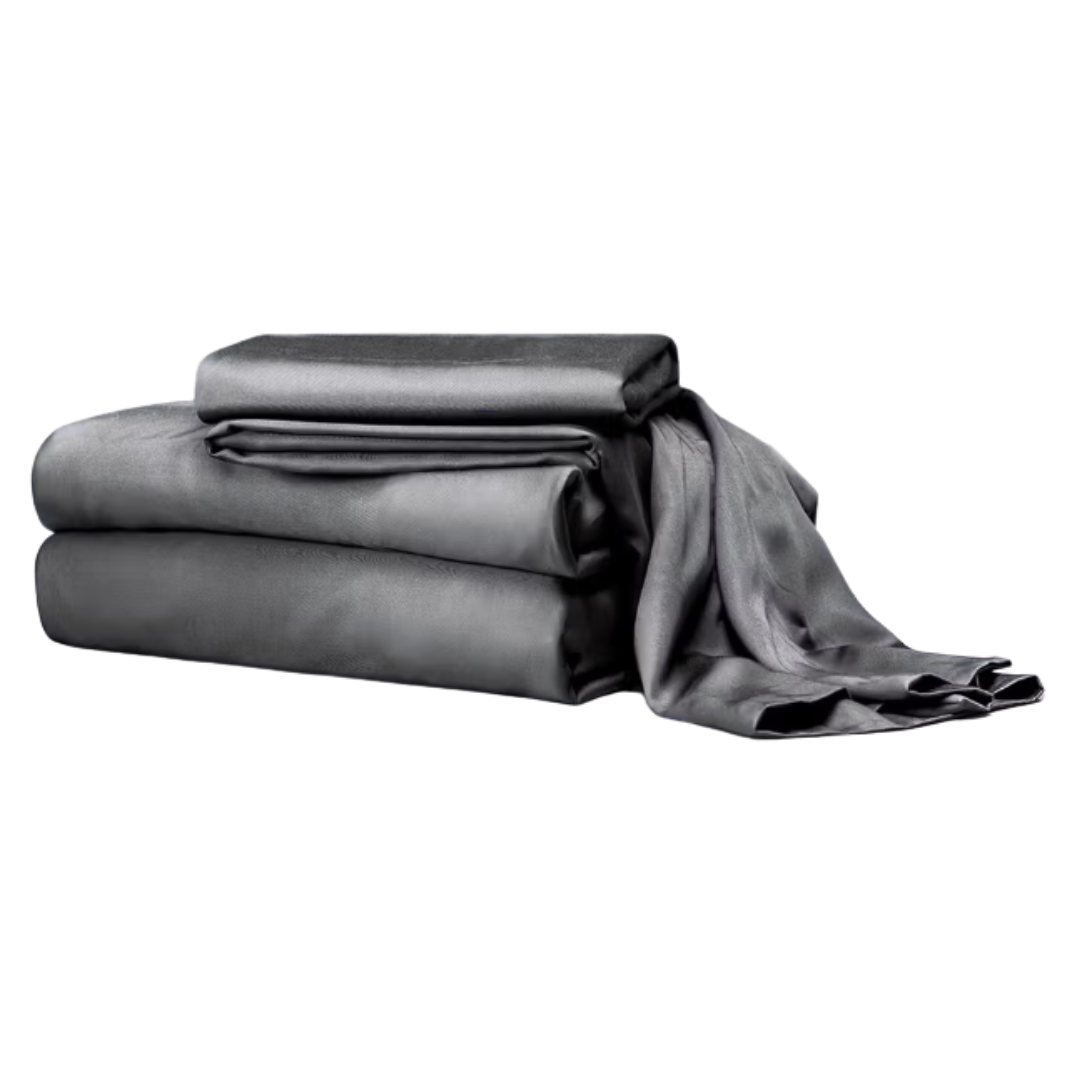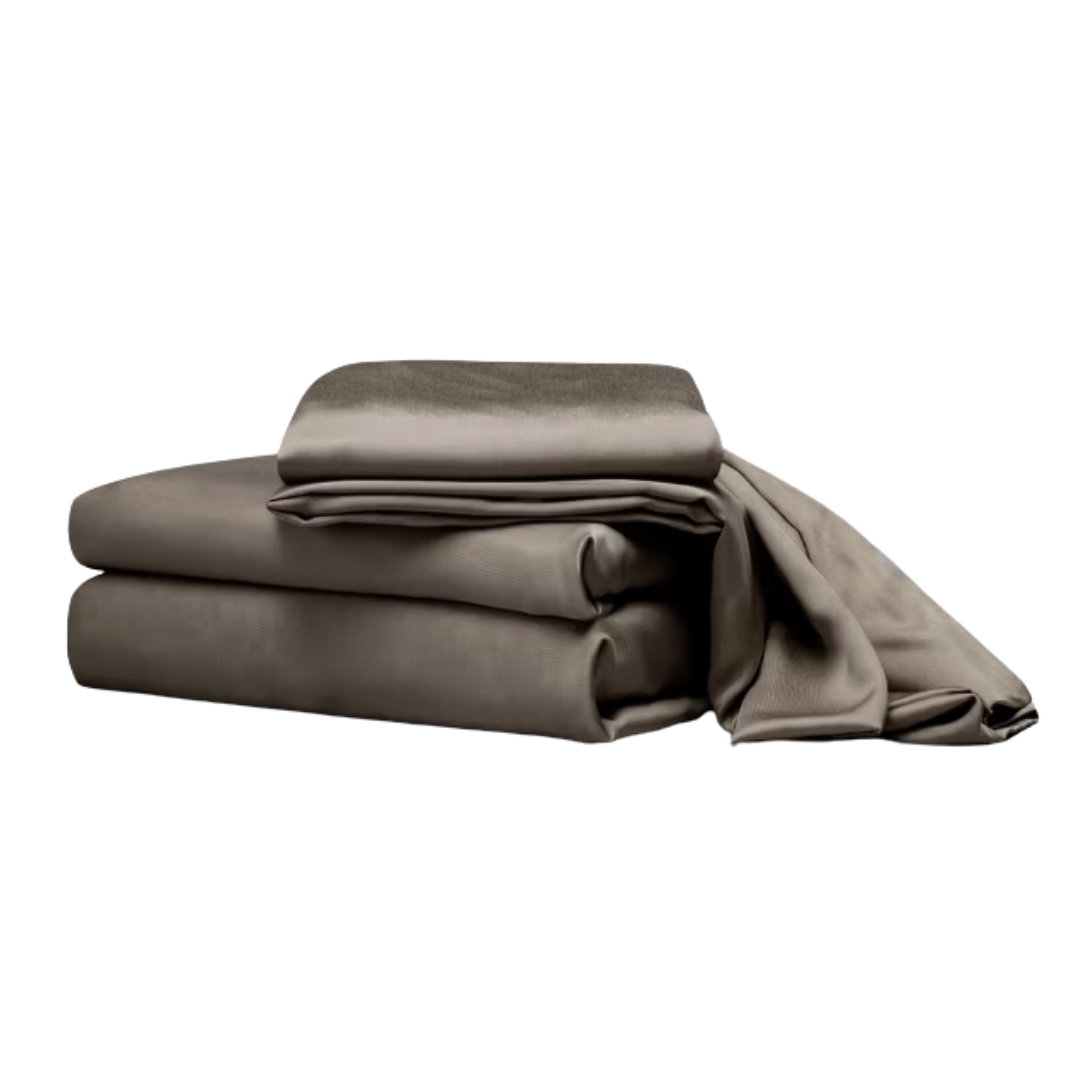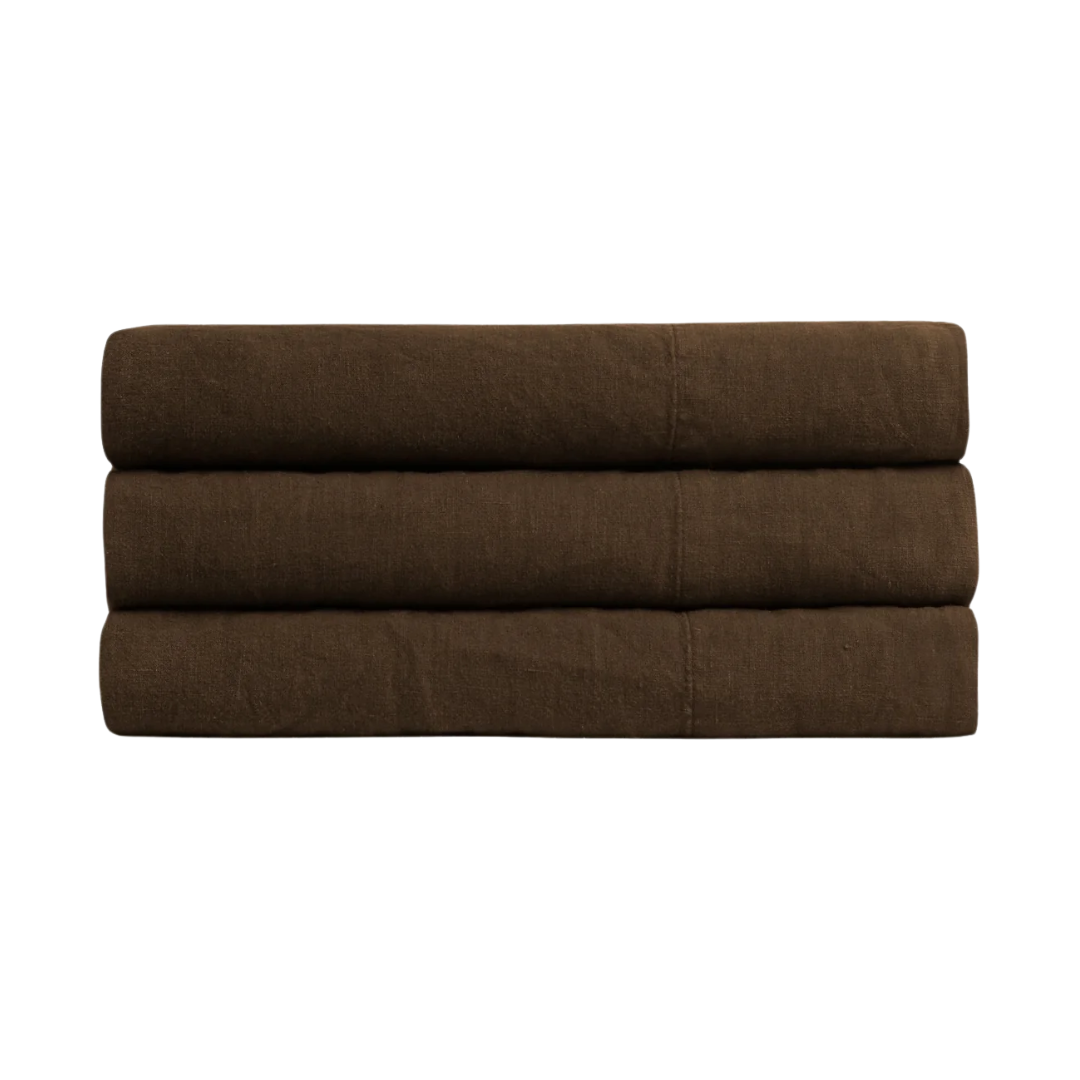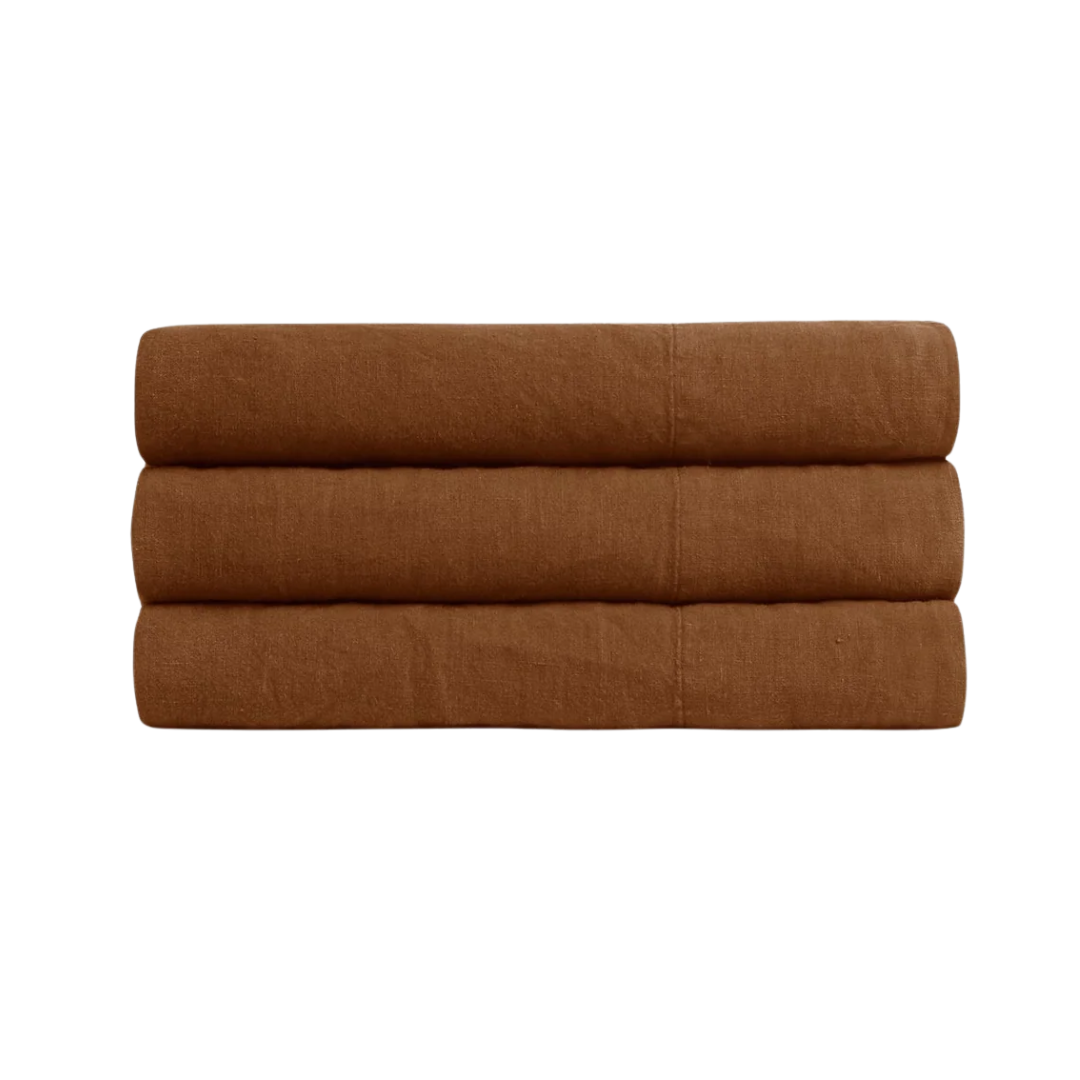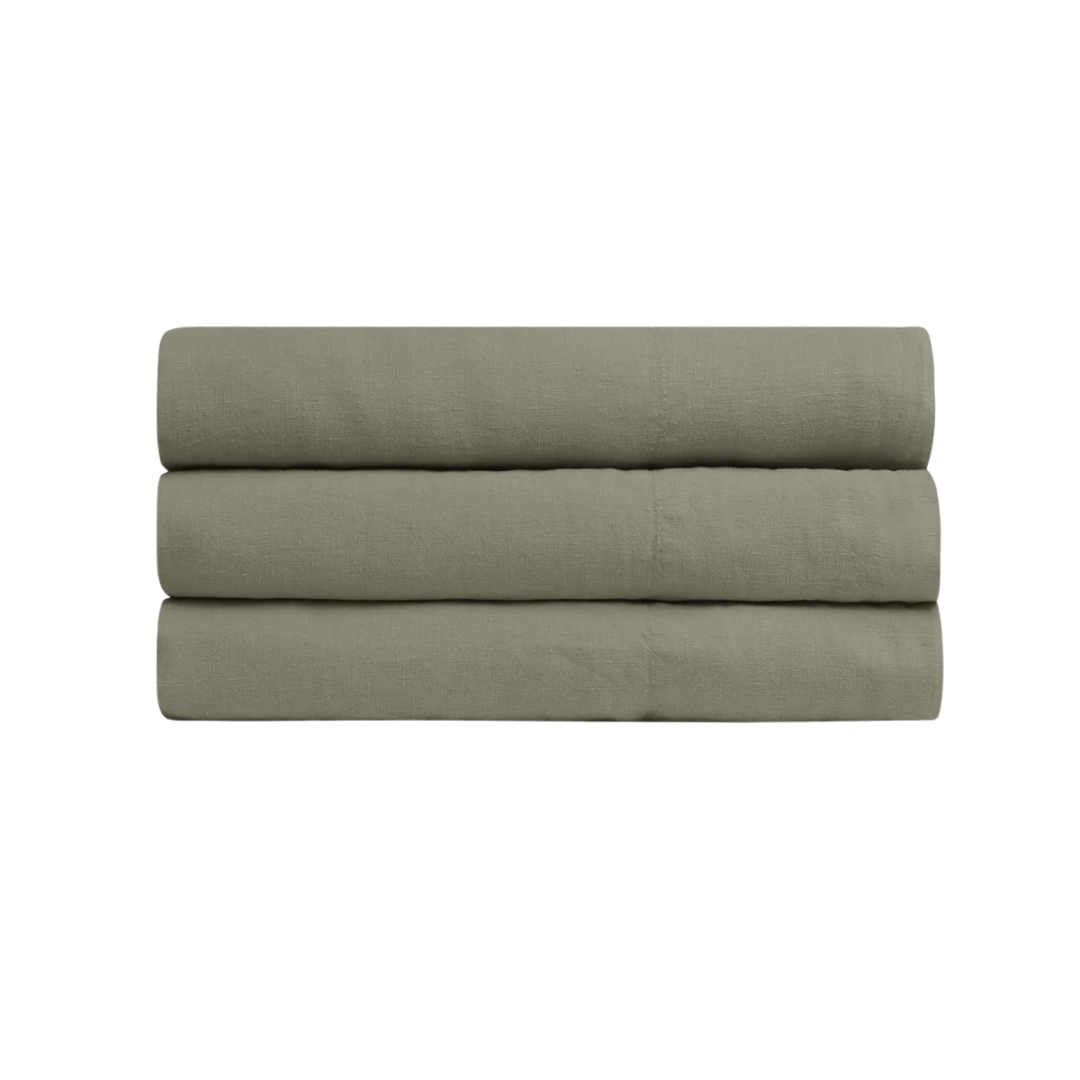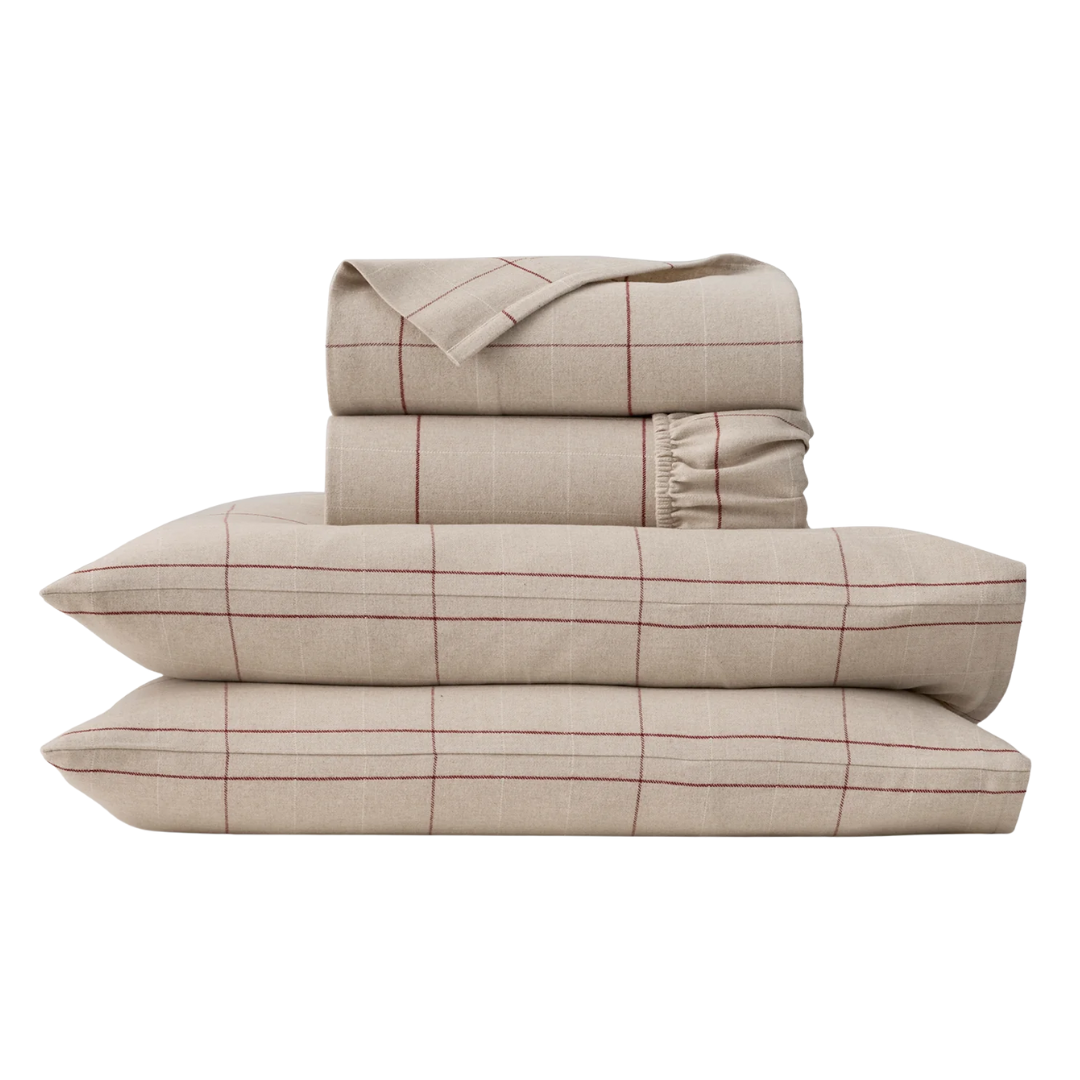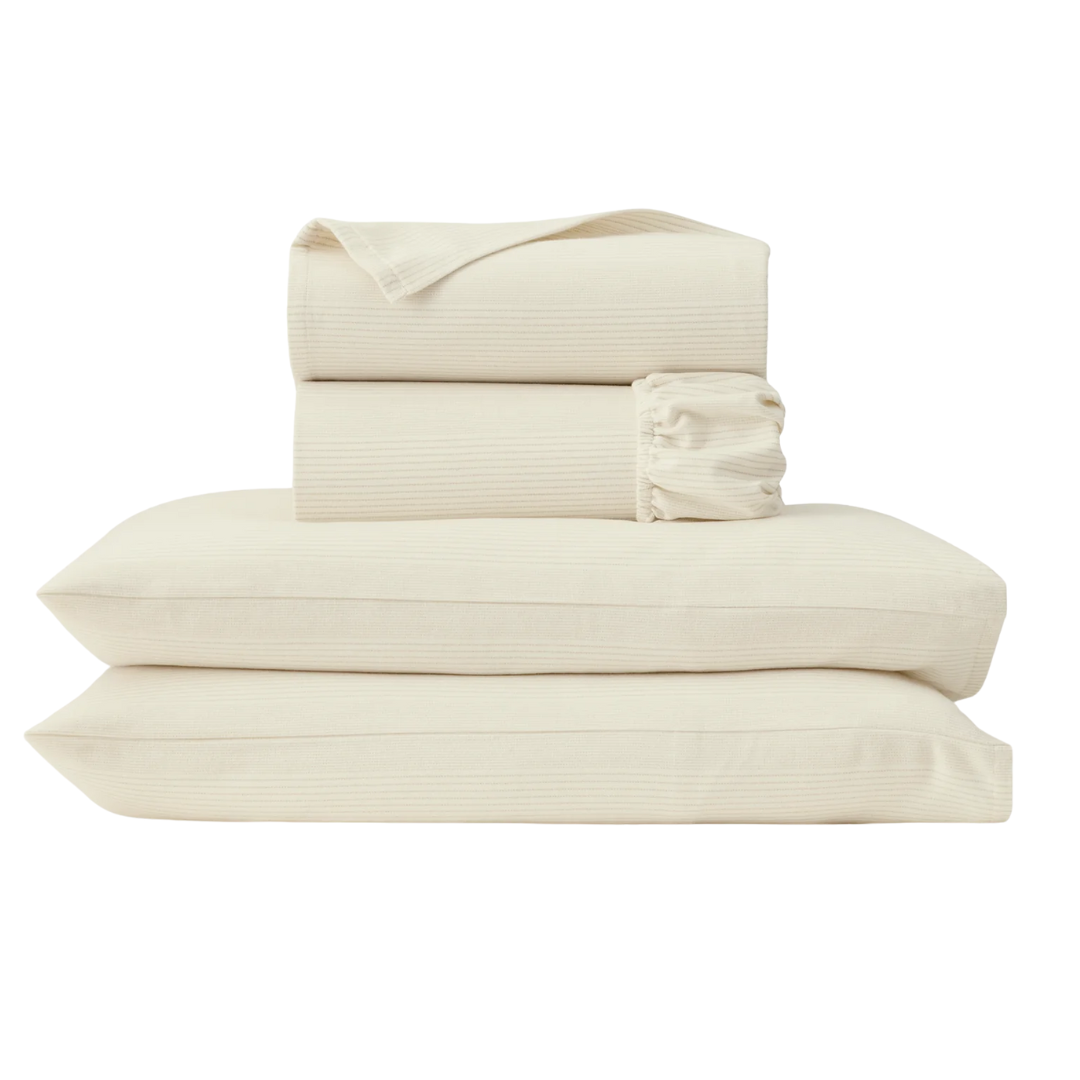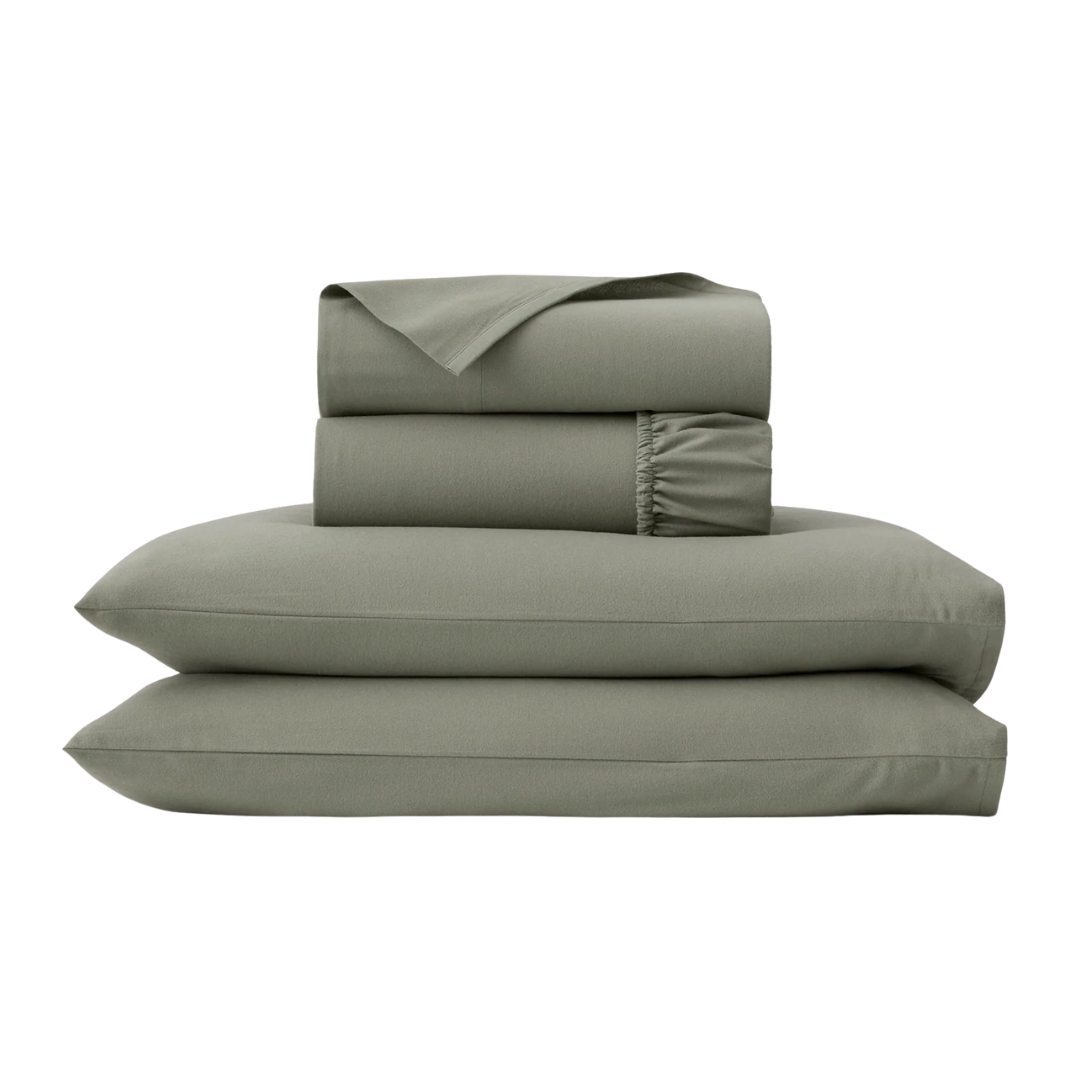I’m a Style Editor With Strong Opinions on Bed Sheets – And These Are the Best I’ve Ever Tried
After months of testing and talking to textile experts, I reveal which bed sheets are worth your slumber

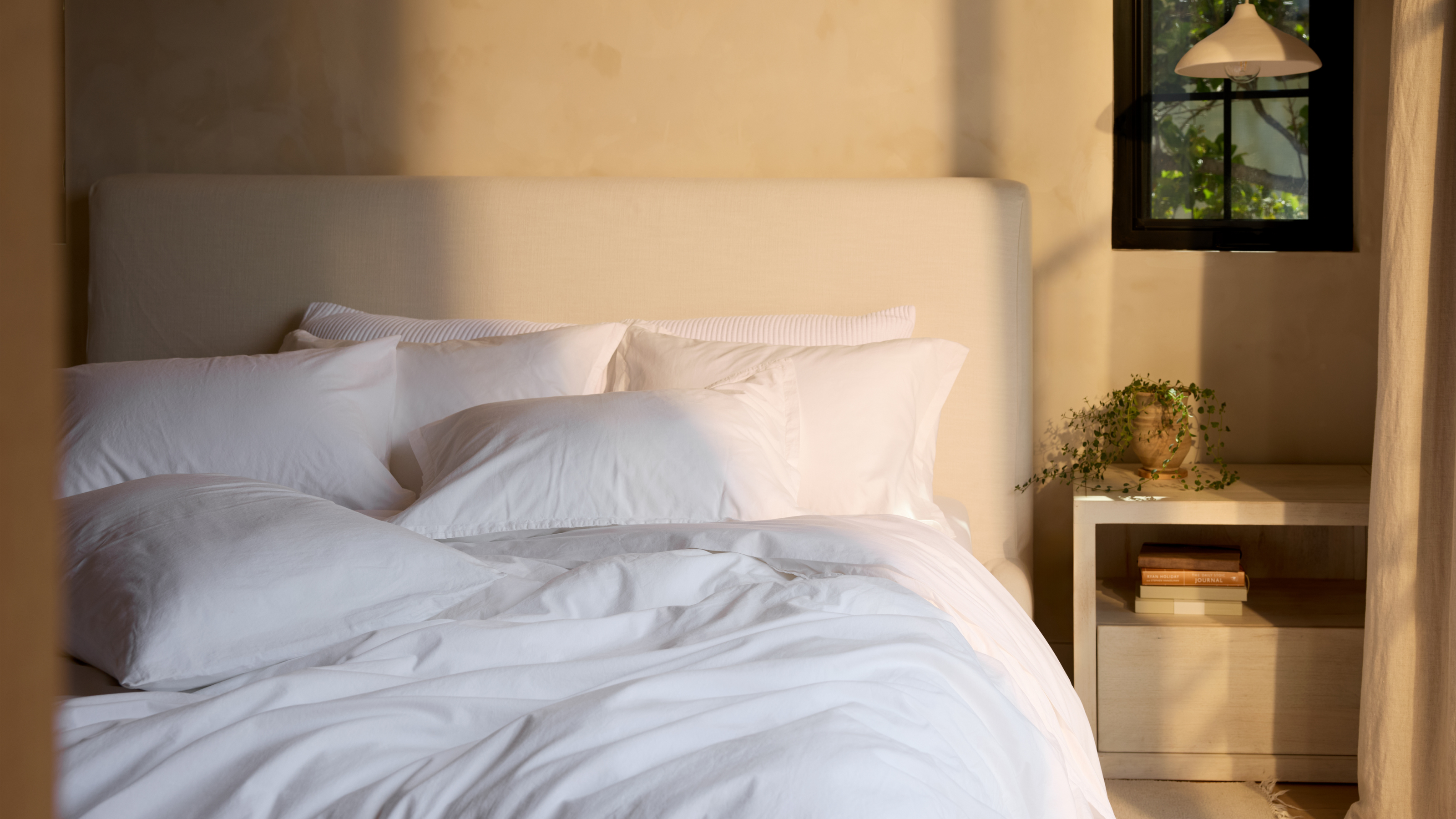
Design expertise in your inbox – from inspiring decorating ideas and beautiful celebrity homes to practical gardening advice and shopping round-ups.
You are now subscribed
Your newsletter sign-up was successful
Want to add more newsletters?

Twice a week
Homes&Gardens
The ultimate interior design resource from the world's leading experts - discover inspiring decorating ideas, color scheming know-how, garden inspiration and shopping expertise.

Once a week
In The Loop from Next In Design
Members of the Next in Design Circle will receive In the Loop, our weekly email filled with trade news, names to know and spotlight moments. Together we’re building a brighter design future.

Twice a week
Cucina
Whether you’re passionate about hosting exquisite dinners, experimenting with culinary trends, or perfecting your kitchen's design with timeless elegance and innovative functionality, this newsletter is here to inspire
Bedding is deeply personal. Your duvet, pillows, and even that ill-advised 2 p.m. coffee all play a role – but without excellent bed sheets, the layer you feel night after night, even the most luxurious, sleep-hygienic setup can disappoint.
Comfort is non-negotiable, of course – but this is Homes & Gardens, so looks matter just as much. ‘At Homes & Gardens, we are pretty obsessed with ensuring that great design encompasses not just brilliant functionality but also superb aesthetics,’ says Interiors Editor Hebe Hatton. ‘It's just as vital to us that the bed sheets we recommend are beautiful-looking as it is that they are excellent quality. The time we spend resting in our bedrooms is more important than ever, so choosing sheets that both look and feel sublime is a must.’
California-based interior designer Andrea Lackie agrees – and for her, it’s GOTS-certified organic bedding or nothing. ‘The last thing you want is to spend eight hours on conventional cotton, linen, or, worst of all, synthetic sheets treated with harsh chemicals,’ she says. Like choosing a real cashmere sweater over a blend, investing a little more for better materials will pay dividends.
You’ll also want more than one set. Like a good wardrobe, bedding should shift with the seasons, notes Jane Morgan, founder of Chicago-based R. Jane Morgan Interior + Design. For spring and summer, she and her clients rely on classic crisp white or cream sheets. ‘They create a neutral base where color and pattern can be layered into the design,’ she explains. In 2026, those layers might include block prints, monograms, embroidered piping or borders, and anything scalloped or wave-like – all of which are having a moment.
The choice, of course, is personal – but what’s consistent, she notes, ‘is a return of clients not only valuing their bedrooms as important places to recharge but also being willing to invest in them.’
I test bed linen for a living, and I can confirm: investing in the right sheets really can change your life. But not all of them deliver. Some promise softness and feel synthetic; others photograph well and wear poorly. With real-world testing, expert insight, and a sharp eye for design, this guide highlights the very best bed sheets you can buy, breaking down the fabrics, weaves, and details that set them apart from the others.
The Best Bed Sheet Deals
Before you begin your bed sheet journey, these are the can’t-miss sales I’d shop first.
- Boll & Branch: Enjoy up to 20% off best-selling bundles with code BEDDING20
- Brooklinen: The cult favorite bedding brand is currently offering 20% off sitewide – or 50% off when you bundle
- Buffy: Linen sheets in gingham, stripes, and charming micro-patterns are 20% off, thanks to a sitewide Winter Sleep Sale
- Cozy Earth: Kris Jenner and Oprah-backed bamboo viscose is up to 25% off
- ettitude: Score CleanBamboo® sheets that are kind to skin, the planet, and, at 25% off, your wallet too
- Sleep Number: Buy one, get one 50% off smart bed–friendly sheets through 2/28
- The Citizenry: Take 20% off stonewashed linen (loomed in Portugal) and cotton (crafted in India) in soothing, design-forward hues
The Best Bed Sheets of 2026
Best Bed Sheets Overall: Cozy Earth Bamboo Viscose Sheet Set
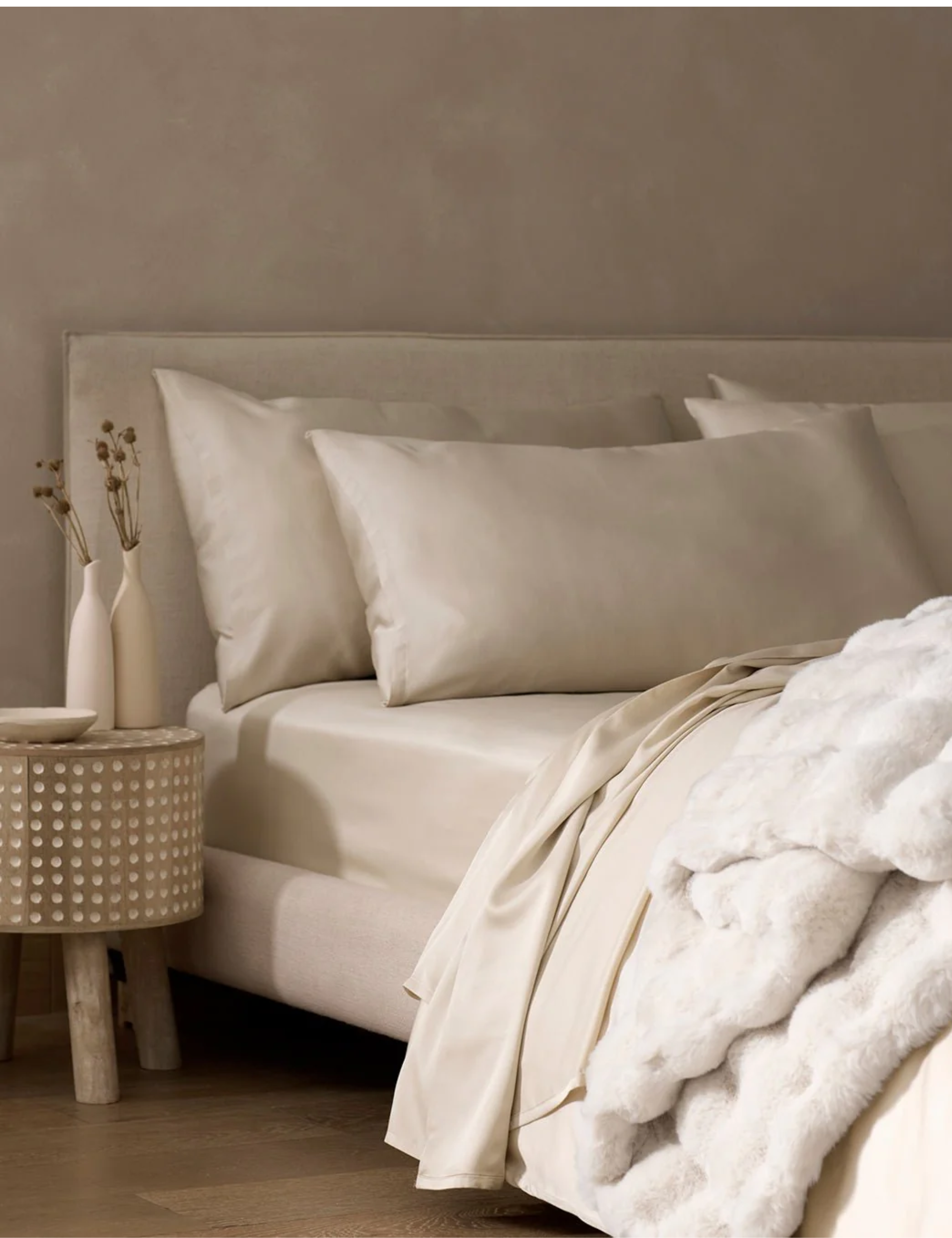
Pros: Ages gracefully, phenomenal value, silk-like sheen, breathable and temperature-regulating, ships in a chic reusable canvas tote
Cons: Mostly neutrals (limited ‘fun’ colors), on the pricier side
I didn’t want to blindly follow the hype around Cozy Earth’s Bamboo Viscose sheets. But after testing more than my fair share of bedding, I can confirm: Kris Jenner, Oprah, and the nearly 9,000 five-star reviewers weren’t bluffing. These really are that good.
Reported to have a silk-like sheen, they somehow feel even softer than silk – and as someone who owns silk sheets, I’ll say it: they’re cooler on the skin and infinitely easier on the wallet. Never too hot, naturally moisture-wicking, and surprisingly breathable, they’ve hit the sweet spot between comfort and performance. I've fallen in love with the grounding, neutral palette of these bed sheets, not to mention the fact that they only get better with every wash.
Best Bed Sheets for Style & Color Range: Brooklinen Classic Percale Core Sheet Set
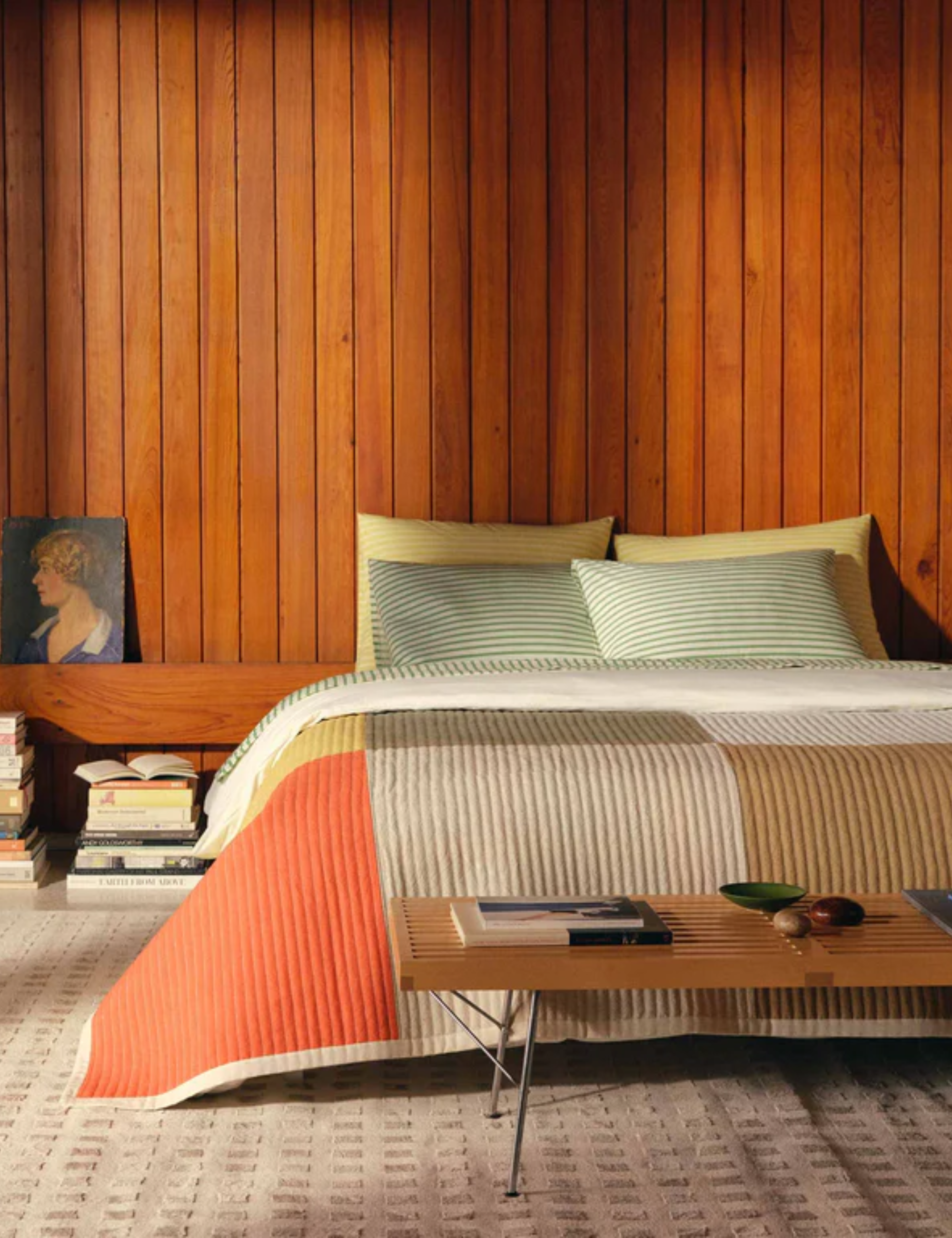
Pros: Ideal for summer and hot sleepers, huge range of colors/patterns, clever ‘long’ and ‘short’ tags that make fitted sheets less of a puzzle
Cons: They take a couple of washes to hit peak softness
If your sheets double as your design canvas, Brooklinen’s Classic Percale set is where to start. Already a cult favorite for their crisp, cool hotel-like feel (think five-star bedding meets your favorite perfectly pressed button-down), they also happen to come in nearly every color and pattern under the sun. The staples stick around season after season, but Brooklinen does a good job at dropping fresh designs tied to trend moments and collaborations, so your bedscape can evolve as you do.
Personally, I live for the collabs – a recent favorite was with Brooklyn-based artist Caroline Z. Hurley. I own the block-printed set above, and they never cease to make me smile.
Best Silk Bed Sheets: LILYSILK Silk Charmeuse Duvet Cover
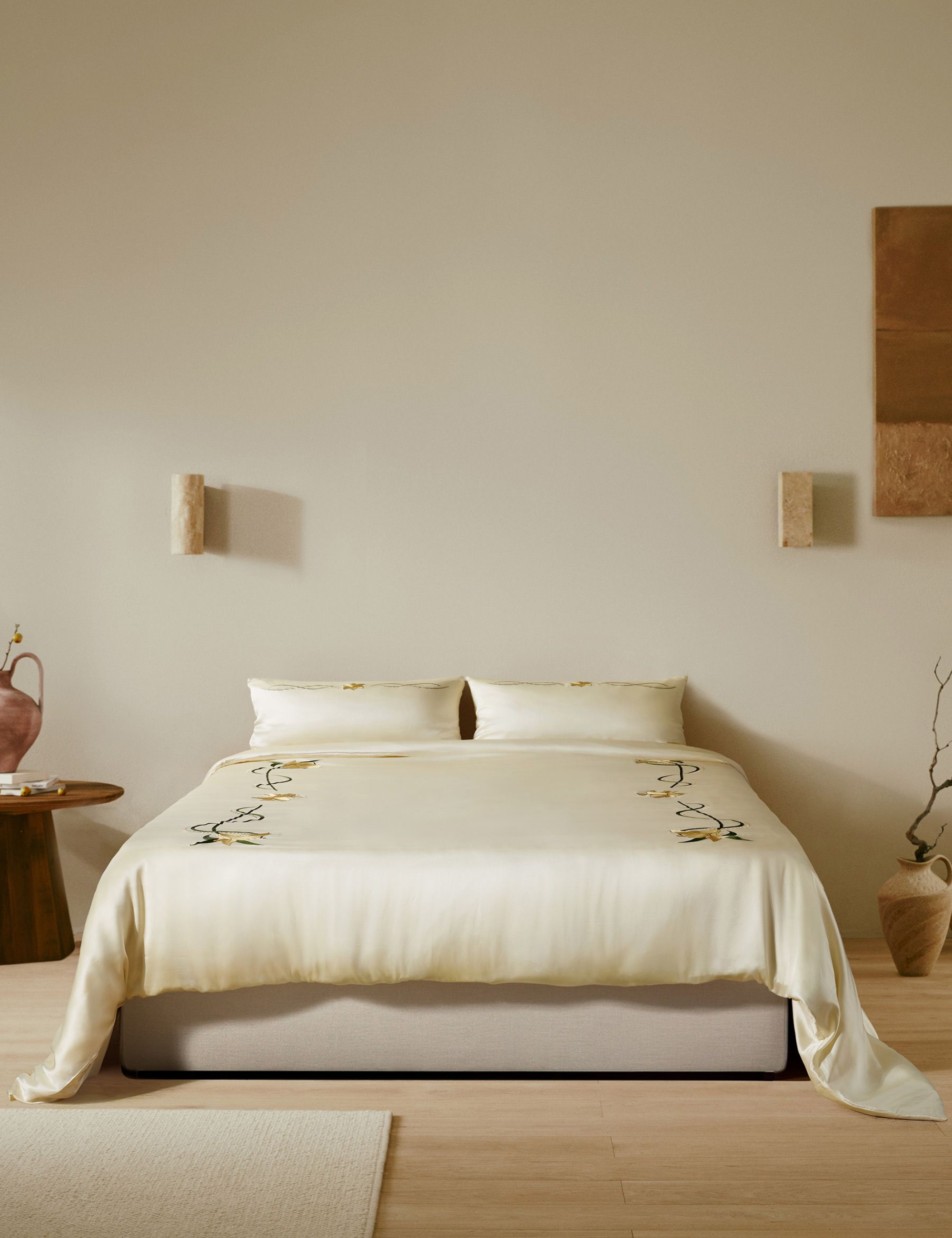
Pros: Beauty benefits (for hair and skin), temperature-regulating, fashion-forward, long-wearing
Cons: Expensive, requires extra care (line dry or dry clean – I do the latter)
Not everyone’s idea of luxury bedding begins and ends with silk, but if we’re being honest, most of us would happily drape our entire beds in the stuff if given the chance. That’s why Lilysilk takes the top luxury spot. Its 100% mulberry silk charmeuse lends a coveted pearl-like luster and feels heavenly on hair and skin. I own several pieces myself, including the darling lily-embroidered line above, which is my forever favorite.
What really sets Lilysilk apart is range: flat sheets, fitted sheets, duvet covers – even full sets – all in silk, which is almost impossible to find. And while it’s far from cheap (a queen flat sheet runs $269), it’s still a relative value in the silk bedding world, where prices can climb into the thousands. Consider it an investment – if you care for it properly, you won’t be replacing it anytime soon.
Best Luxury Bed Sheets: Matouk Celine Flat Sheet
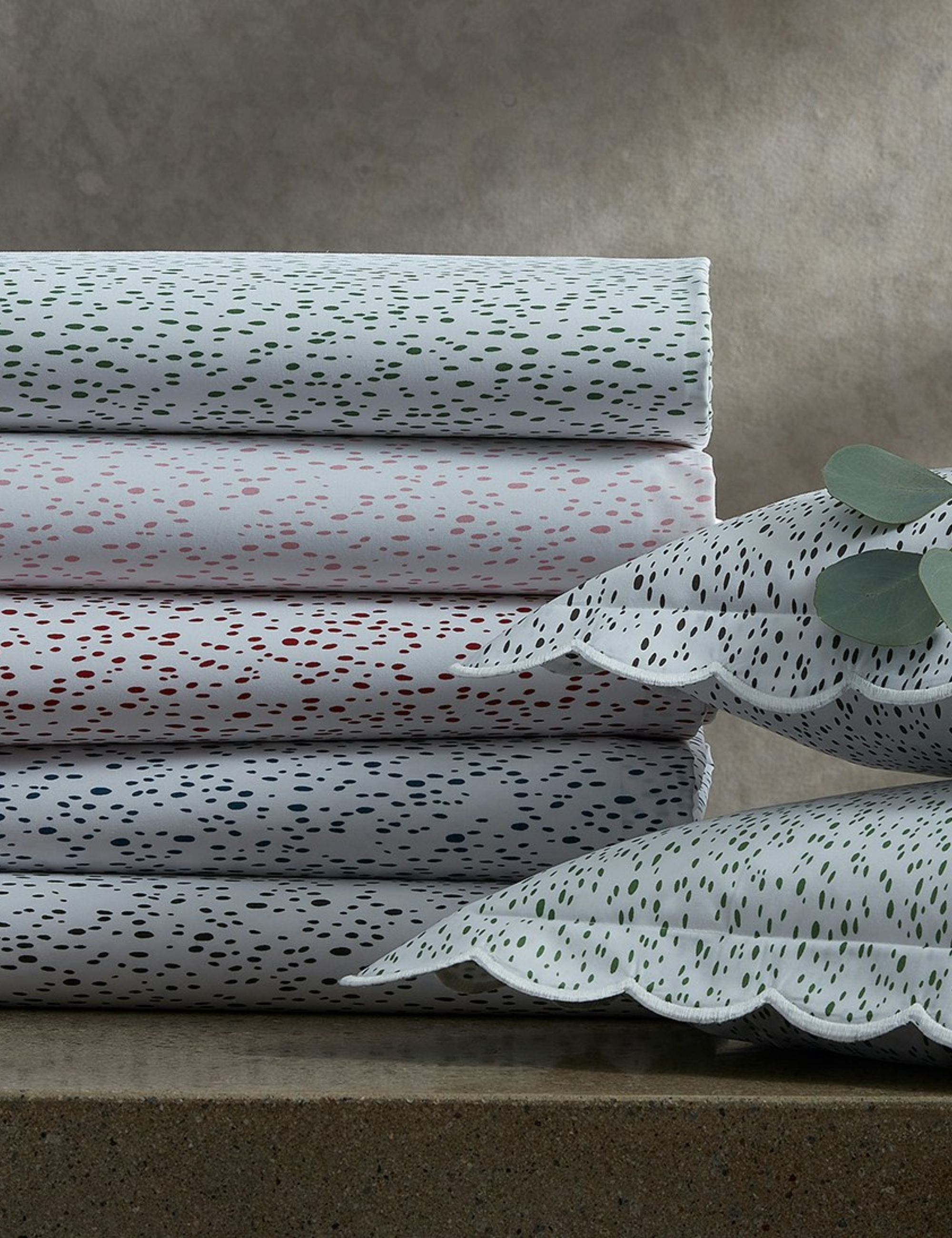
Pros: Exceptional craftsmanship, bespoke embroidery, wide style range, adored by tastemakers
Cons: Expensive; some reports of slight shrinkage after repeated washes (the brand recommends low tumble drying)
I’ve never been lucky enough to dress my own bed in Matouk, but I did get to try the brand during a weekend stay at an extraordinarily chic family friend’s home. Her place feels like a Ralph Lauren catalog come to life, dripping with equestrian touches, potted hydrangeas, and treasures collected from all over the world. Every bed – and I mean every single one – was dressed in Matouk.
It’s no coincidence. There’s a loyal sect that swears by the brand for its heritage craftsmanship, world-class materials (such as Italian-woven Egyptian cotton percale – the exact combo I slept on, still crisp past 100 degrees), and thoughtful detailing, like this scalloped border flat sheet dotted with tiny, painterly red spots. My host’s sets have lasted over a decade, which says it all.
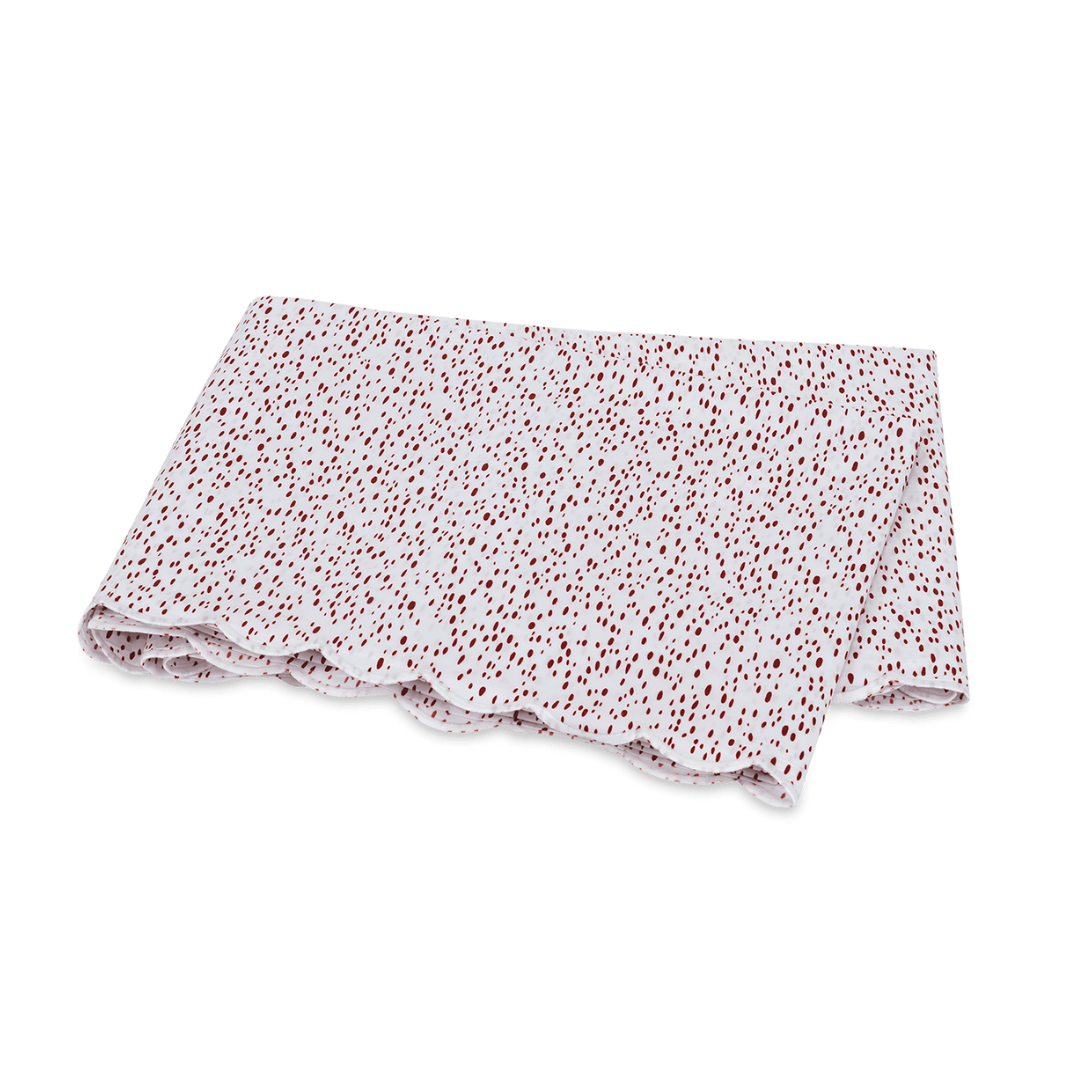
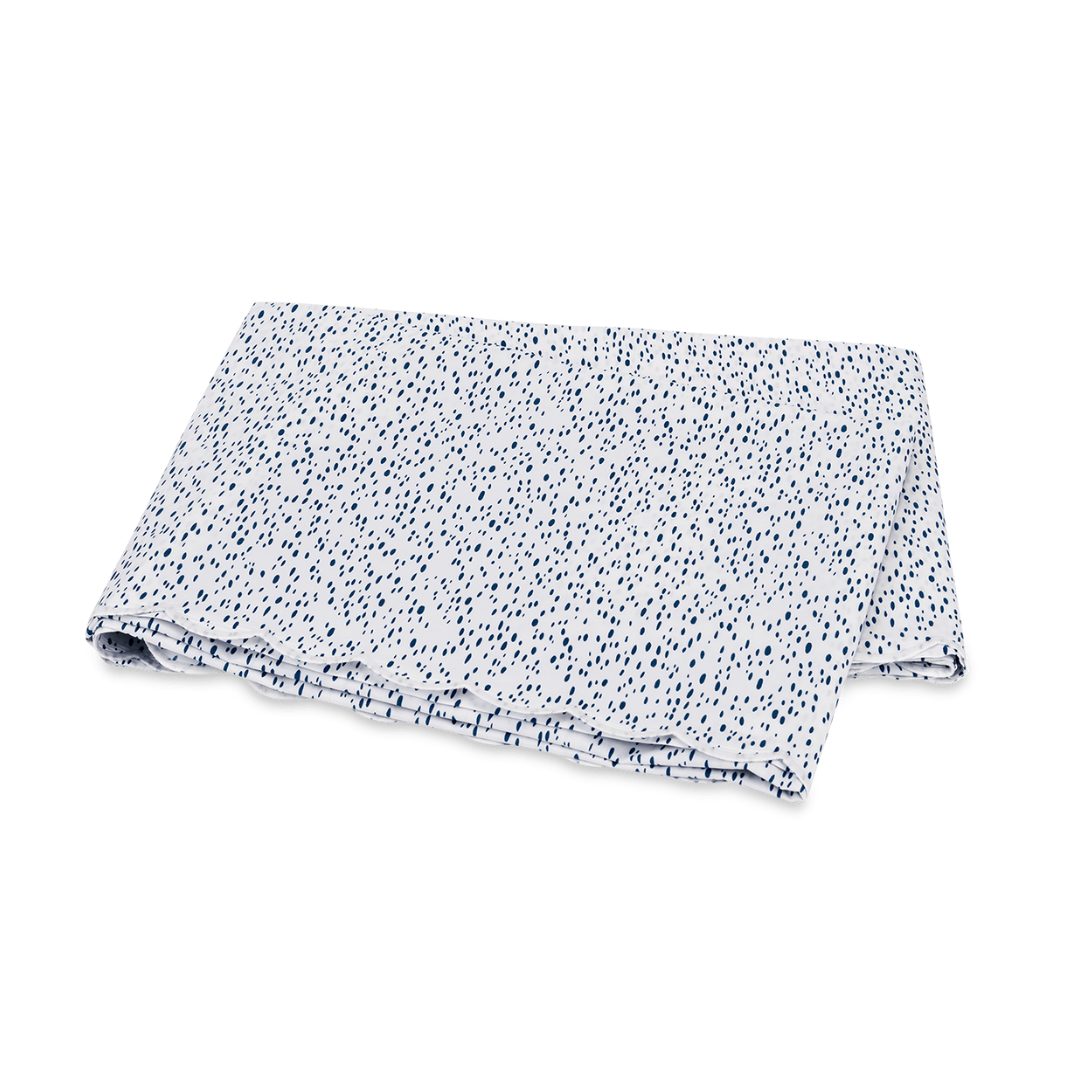
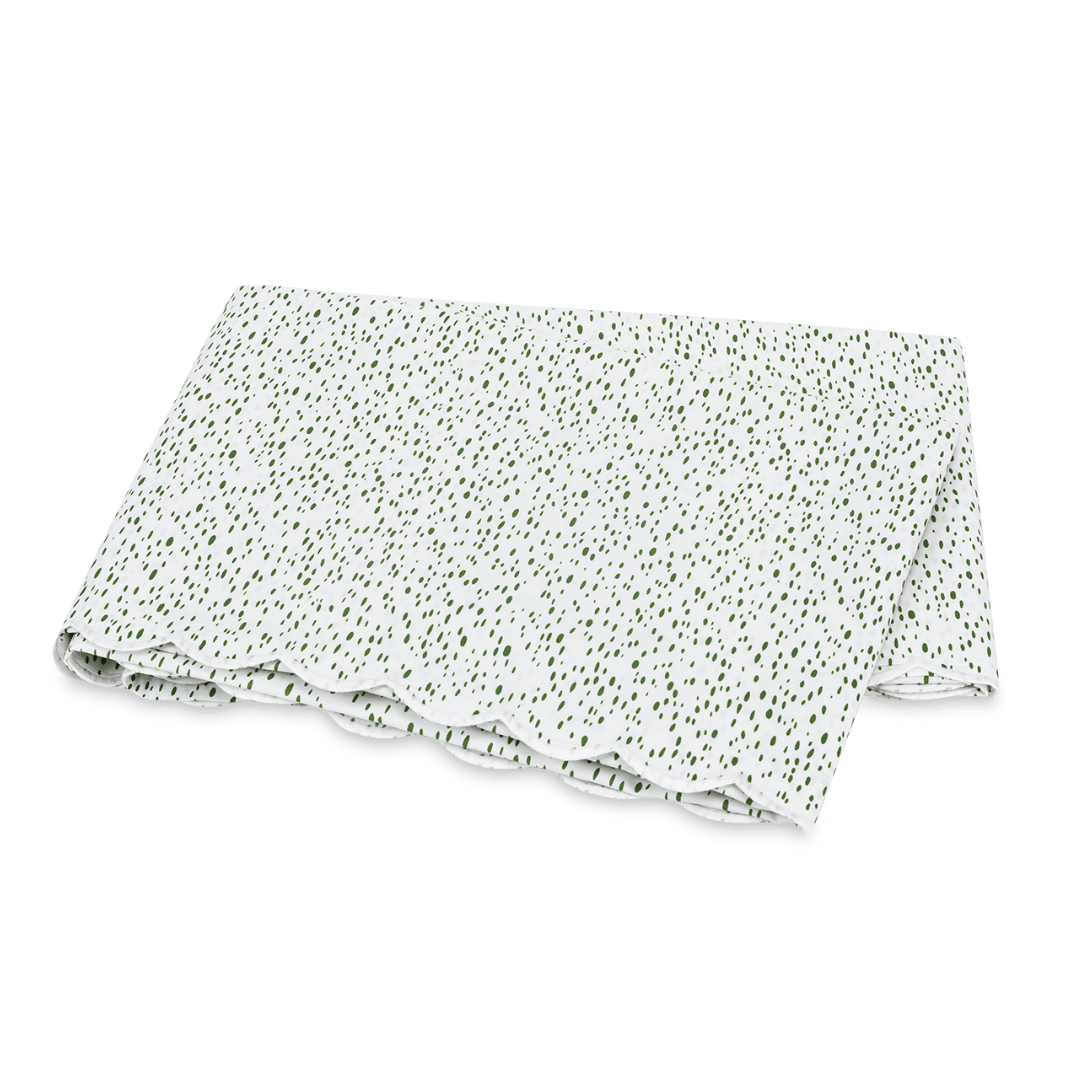
Best Luxury-for-Less Bed Bed Sheets: Quince European Linen Sheet Set
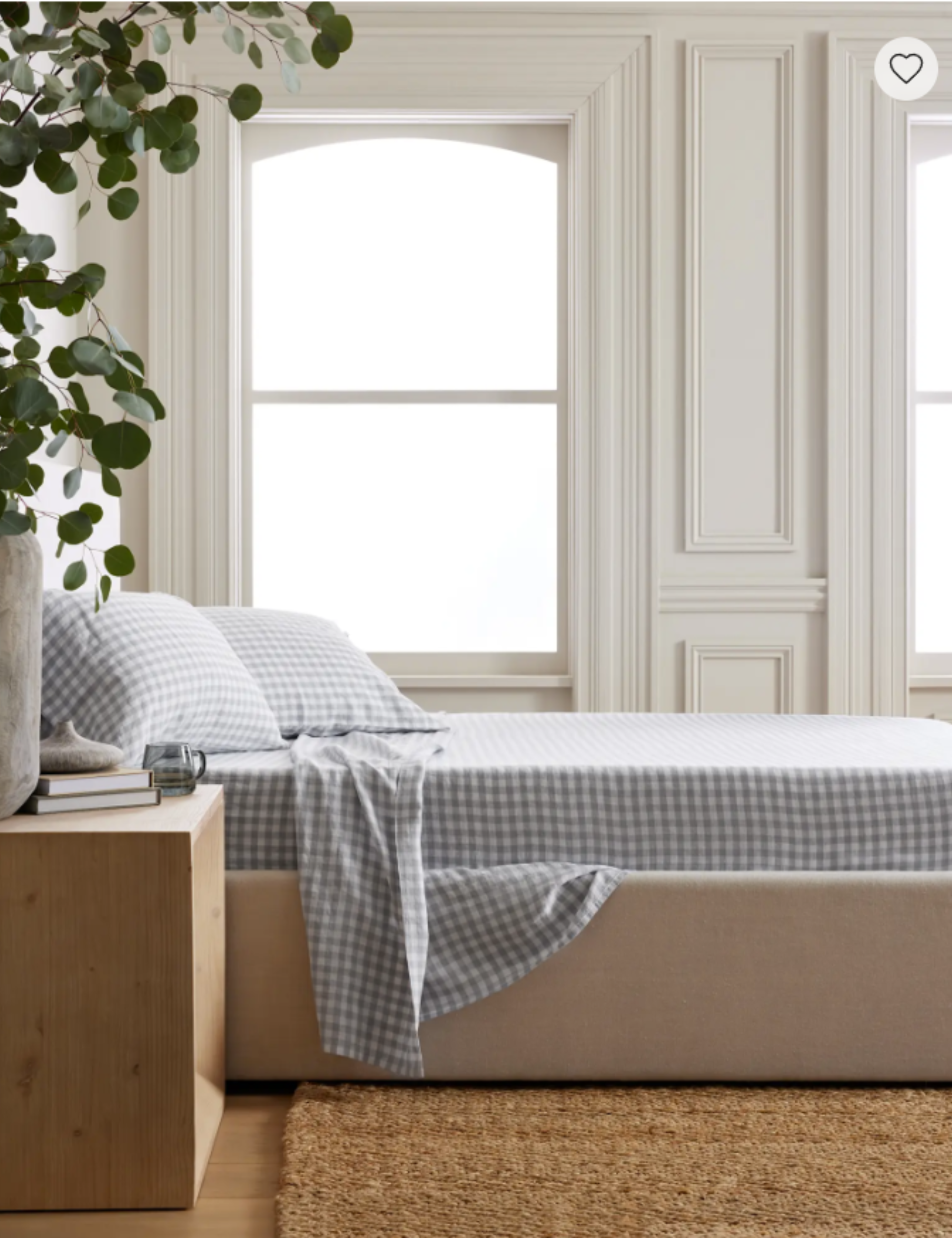
Pros: Made in the same factories as the luxury heavy-hitters, elevated designs that play well with everything, candid customer reviews
Cons: Shipping can lag – patience may be required
If you’ve ever flirted with a ‘quiet luxury’ wardrobe – or simply absorbed enough podcasts to know the genre – you already know Quince. It’s the brand behind the $119 Mongolian cashmere sweaters and improbably affordable diamond tennis bracelets. What’s less loudly advertised is that the same cut-out-the-middleman ethos extends to the bedroom, where Quince offers nearly every luxury sheet material worth knowing – from long-staple Giza cotton sateen to mulberry silk – at prices that feel slightly implausible.
While the brand made its name on elevated basics, this is far from a beige-only situation. Contrast piping, spring-ready gingham, and even scalloped-edge percale are all on offer and tap directly into 2026’s renewed appetite for charm and personality. Admittedly, all of this sounds too good to be true, but having personally tested the European Linen Sheets – alongside pricier, pre-washed linens made from the same responsibly sourced flax – dare I say: they might even be a touch crisper…
Best Hyoallergenic Bed Sheets: ettitude Signature Bamboo Sheet Set
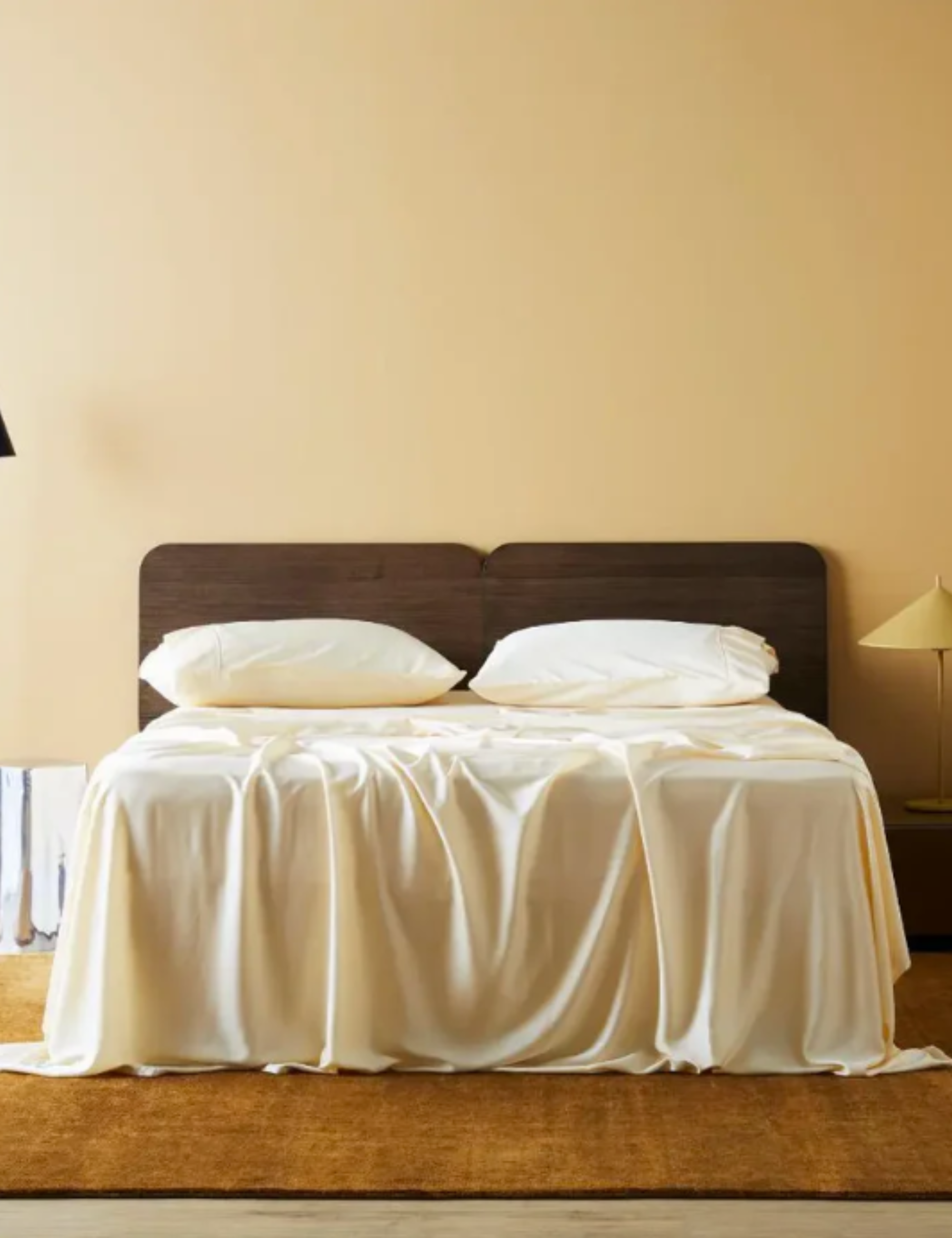
Pros: Sustainable, patented hypoallergenic bedding material, cloud-like softness
Cons: Limited fabrications and color options
Believe it or not, bedding can harbor quite a few allergens, such as dust mites, mold, pet dander, and even harsh chemical residues from dyes or flame retardants. If you’re sensitive to any of the above (or just want the peace of mind that your sleep setup is as ‘clean’ as possible), ettitude’s patented CleanBamboo® is a safe haven.
Crafted in a closed-loop, non-toxic process, these pillowcases deliver breathable comfort and skin safety. They’re lab-tested to sleep cooler and wick more moisture than cotton, while also resisting microbes and minimizing allergens between washes. Look no further for cleaner, softer, and more reliable bed sheets that actually support better rest.
Best Budget Bed Sheets: Casaluna by Target Rayon from Bamboo Sheet Set
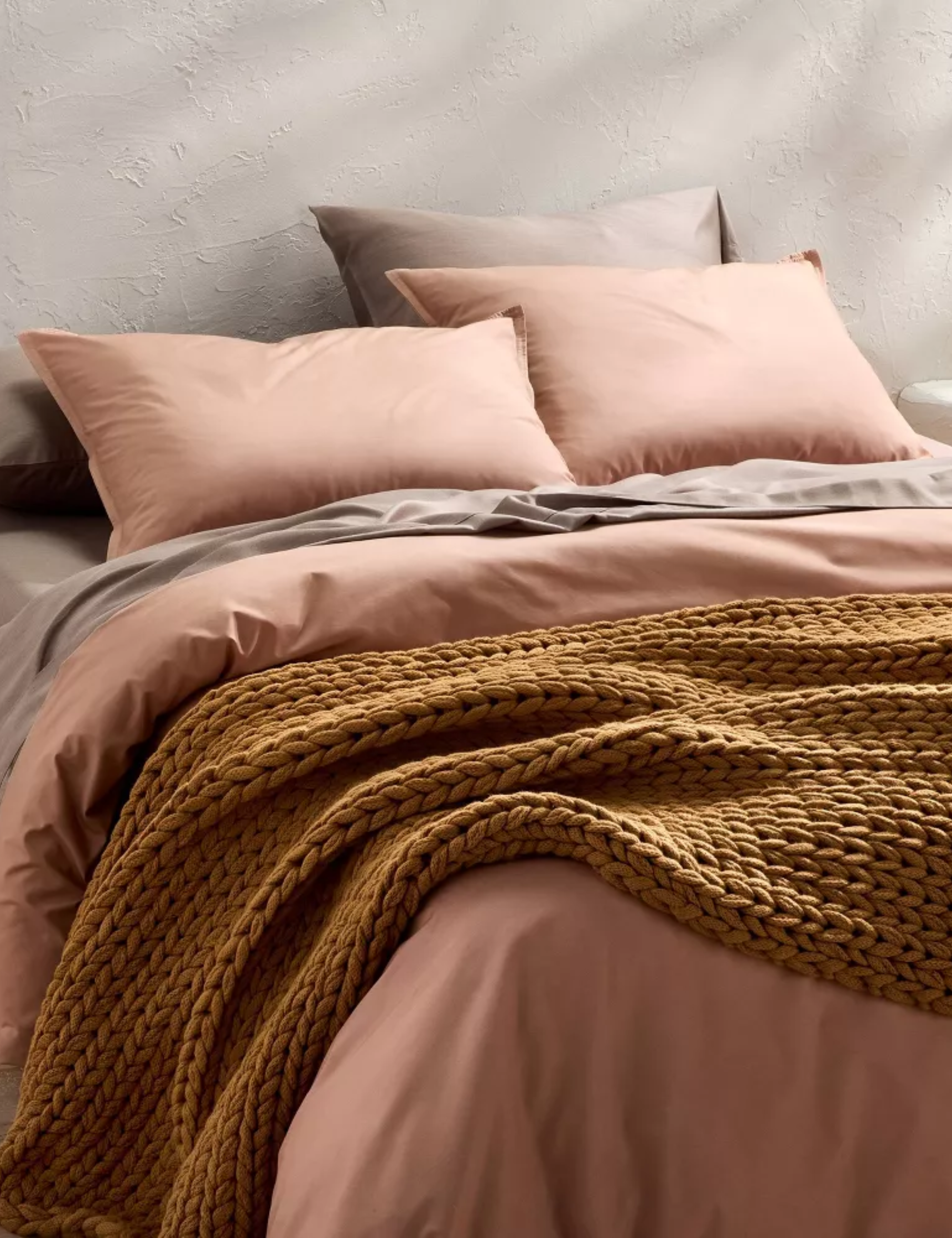
Pros: Elevated neutral palette, affordable, cooling
Cons: Prone to stains, some reviewers note a chemical odor at first (common for budget sheets)
I wouldn’t brand myself a ‘budget’ girl per se, so when I find an affordable bedding recommendation worth passing along, it’s rare – which brings me to Target’s Casaluna line. You’ve probably seen it floating around social media, and the attention is warranted – these sheets have amassed a devoted cult following for their ability to mimic the nuanced neutrals and buzzy fabrications (bamboo viscose, 100% linen) you’d usually find from boutique brands at twice the price.
Are they just as good as the luxury players on this list? No. But if you want the look and feel without the splurge, Casaluna’s bamboo rayon sheets are the standout. For the price, they’re as close as it gets to a luxe-adjacent sleep setup without denting your wallet.
Best Sustainable Bed Sheets: Coyuchi Cloud Soft Organic Sateen Sheet Set
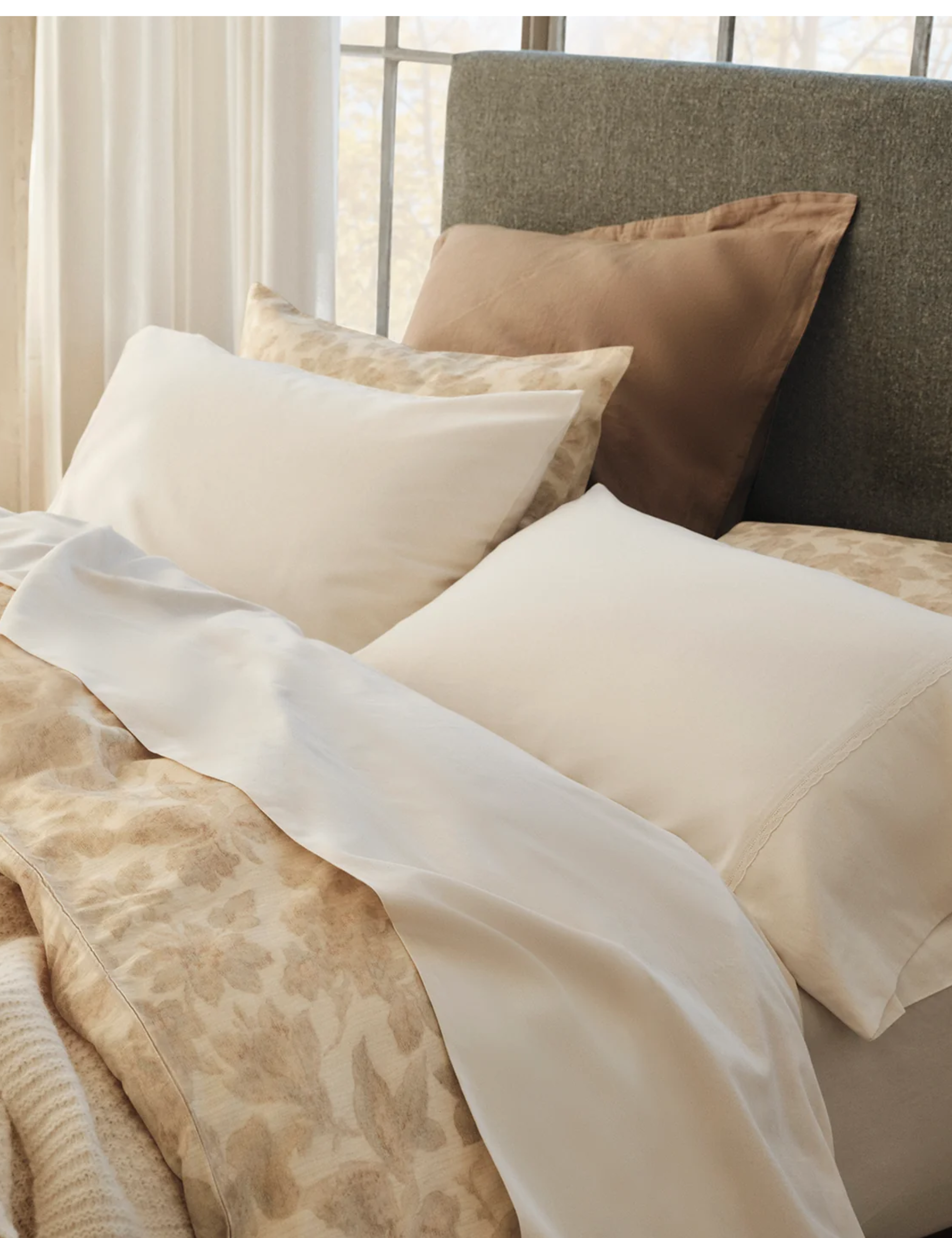
Pros: Long-lasting, genuinely sustainable, celebrity-approved (Naomi Watts is a brand ambassador)
Cons: Pricey, fewer style options than trend-driven brands
Coyuchi was doing sustainability long before it was cool. Founded in 1991, the brand has been a leader in organic bedding for decades, and unlike most companies that say they’re green, Coyuchi actually puts its money where its mouth is. GOTS- and Fair Trade–certified, the brand also runs a circular ‘2nd Home Renewed’ program, where you can shop pre-loved Coyuchi sheets that have been cleaned, certified, and resold at a discount.
The designs are rooted in nature, with barely-there prints inspired by places like Big Sur, and materials that span flannel, percale, and linen. But the standout is the organic cotton sateen, which is smooth, substantial, and finished with chic touches like scalloped embroidery.
Best Bed Sheets for Hot Sleepers: LUXOME Luxury Bamboo Viscose Sheet Set
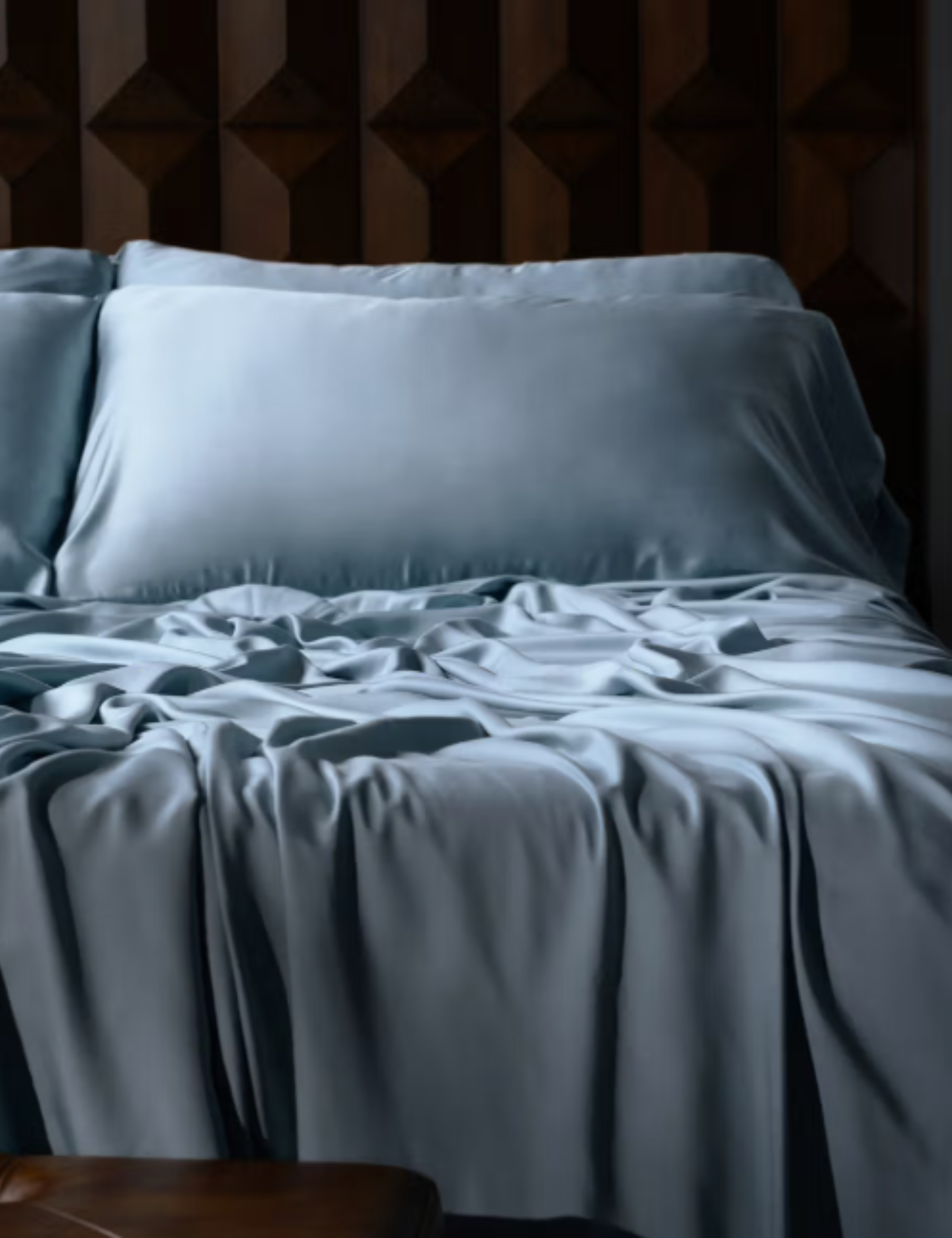
Pros: Incredibly cooling, lustrous drape, more affordable than most luxe bamboo viscose
Cons: No patterns, some might find them too slippery
If you want silky, buttery sheets that won’t have you sweating through the night, LUXOME is the move. Made from bamboo viscose – similar to Cozy Earth’s cult set – these feel lighter and a touch breezier, making them perfect for warm climates or hot sleepers.
I can vouch personally: when I’m in LA (basically eternal summer), this is the set I reach for most. They’ve held up beautifully after ten-plus washes (no loss of luster; no thinning, pilling, or snagging), and the colorways are unexpectedly chic for bamboo bedding – the Terracotta in particular lends that eye-catching sheen often associated with high-end silk.
Best Everyday Bed Sheets: Parachute Linen Top Sheet
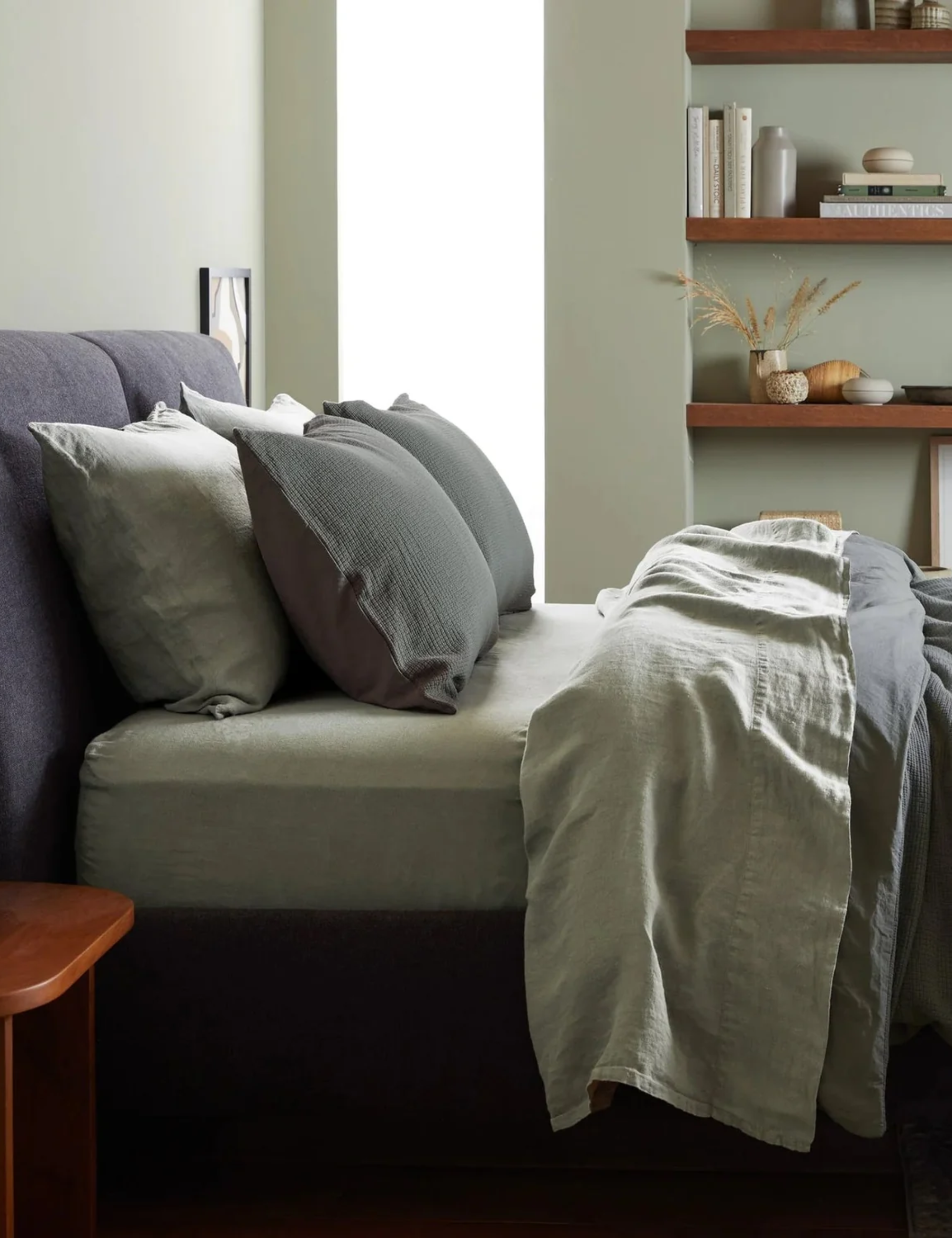
Pros: Elevated neutrals, heirloom-quality, always effortlessly chic
Cons: Expensive, limited style range
I’ve got to hand it to Parachute. Maybe I’m biased – some of my favorite stays (hello, Proper Hotels) are loyal to the brand, which first sparked my interest – but their sheets have completely won me over. The colors alone are a draw, spanning evergreen neutrals like Bone or Moss, or a saturated cobalt that feels more fashion-forward than anything else in the category.
Looks aside, the feel is what keeps them in my bedding rotation. Thanks to thoughtful pre-washing, the linen slips onto a bed like a perfectly broken-in pair of jeans. You don’t even have to make the bed for them to look good; in fact, a little rumple only adds to the vibe. Ideal for busy people, linen loyalists, and anyone who secretly wants to live in a beach house year-round.
Best Bed Sheets for Winter Warmth: Boll & Branch Flannel Sheet Set
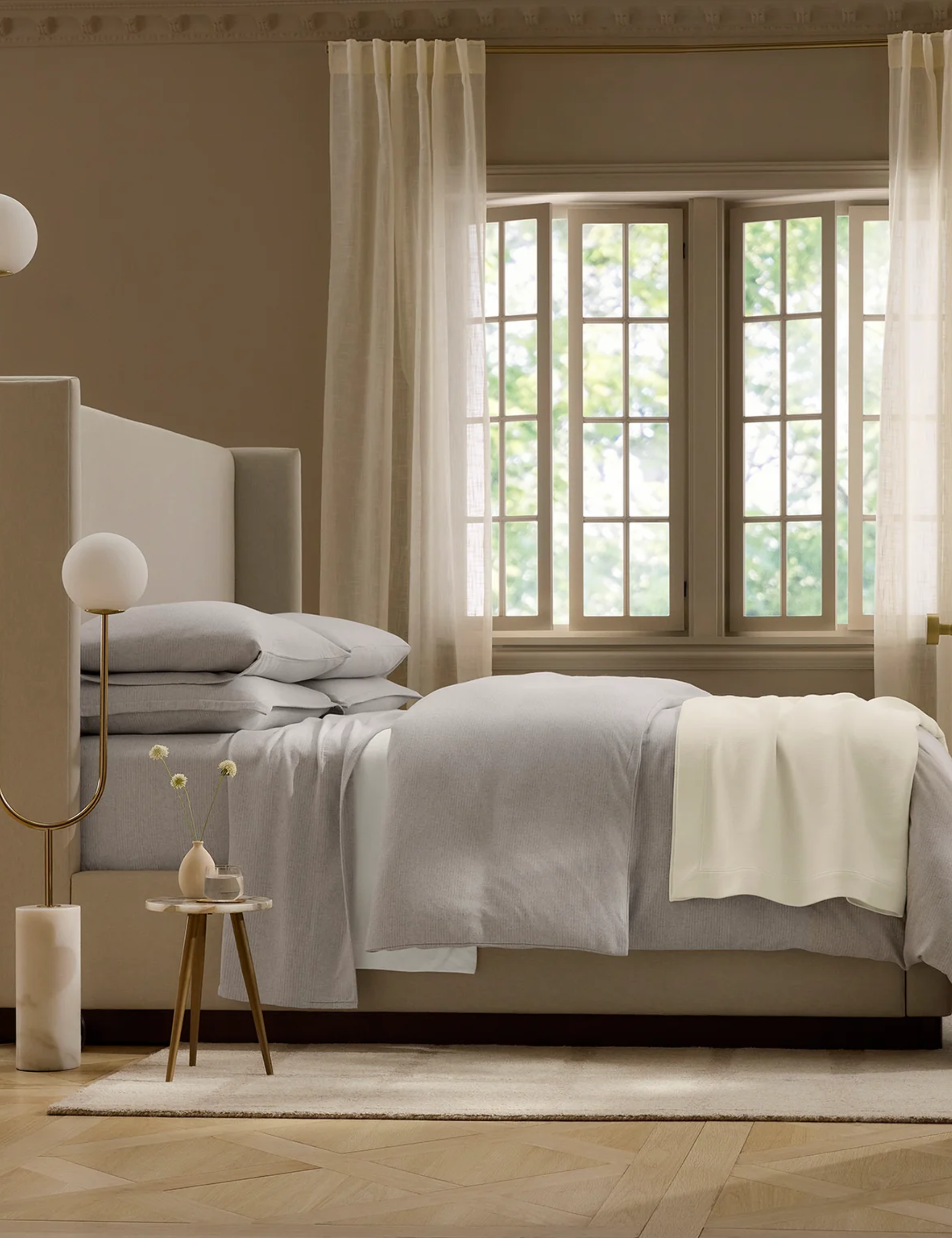
Pros: Wide size range (including Twin XL and California King), unusually chic for flannel, warm without overheating
Cons: Pricey, some find them too hot, a minority of reviewers report pilling over time
Candidly, I don’t own Boll & Branch’s flannel sheets myself (the radiator in my pre-war NYC apartment does plenty of work in winter). But I have friends who swear by them, and over 10,000 reviewers back them up. One even noted their first set lasted six years, which is saying something.
They’re artisanally made in Portugal, velvety soft, and naturally pill-resistant. Warm and toasty, obviously, but not overly so – meaning you won’t wake up sweaty at 3 a.m. And while ‘flannel’ might conjure log-cabin lumberjack vibes, Boll & Branch pulls off chic with minimalist patterns (the windowpane is my favorite) and rich neutrals.
How to Choose the Best Bed Sheets
A pretty pattern isn’t enough, and ‘comfort’ is more complicated than it sounds. What actually makes for the best bed sheets? From fiber content to weave to the way it fits on your mattress, every detail adds up. Here’s the checklist I swear by when picking bed sheets that look good, feel better, and actually last.
Sheet Materials
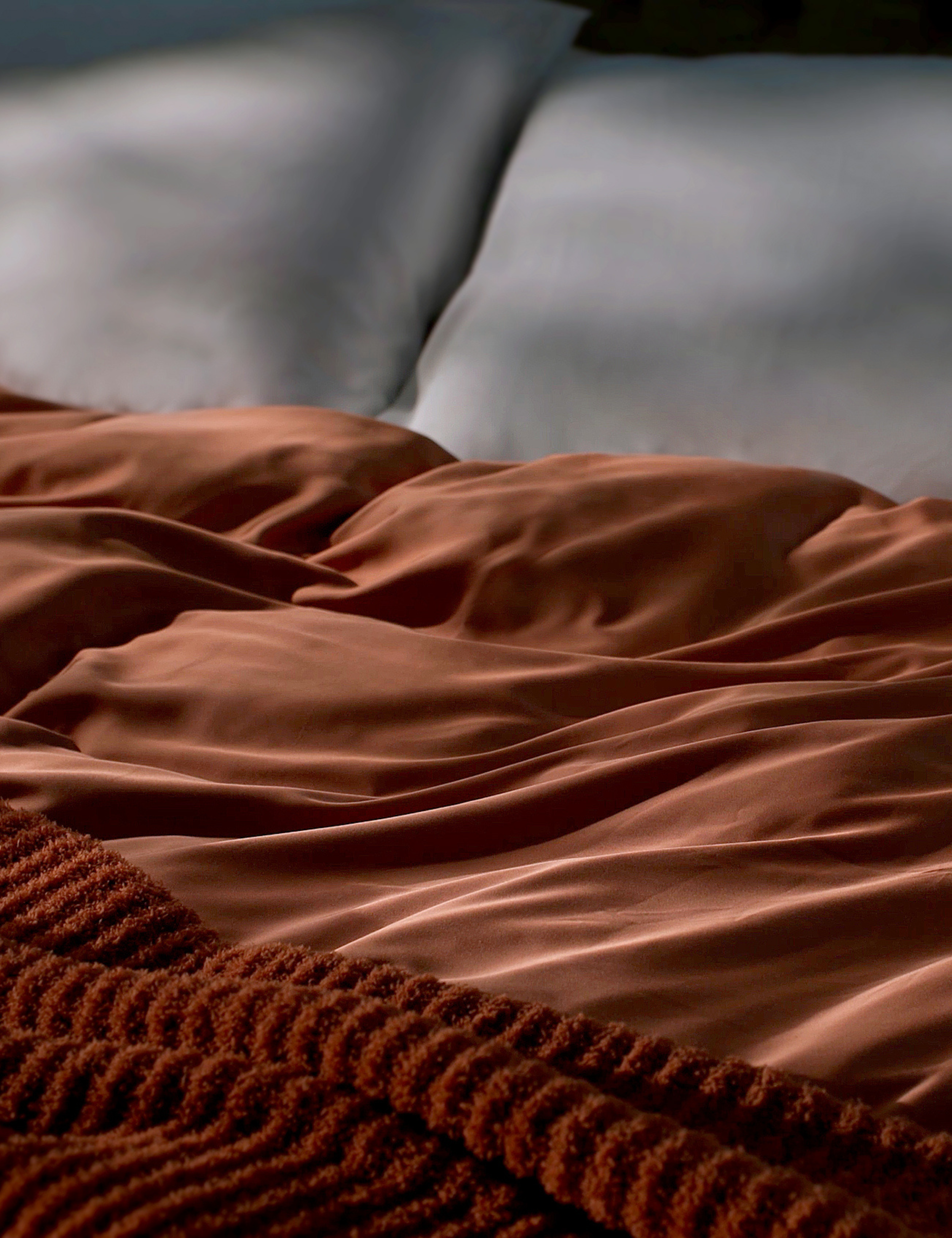
Bamboo viscose may be a newer addition to the bedding canon, but we’re glad the super-silky, environmentally sound material has been championed by brands like LUXOME.
Cotton
Pro: ‘Cotton is by far the most popular bedding material, and for good reason – it’s breathable, soft and durable,’ says Amy Hoban, Chief Creative Officer at Parachute. With options like percale, sateen, and flannel, there’s a weave for every sleeper. Amy notes that long-staple cotton is the one to look for as it resists pilling and holds up better over time. Having tested ten-plus cotton sheet sets on my own bed, I can confirm: while pricier upfront, quality cotton pays off in both versatility and longevity, making it my top all-around bedding material for the unacquainted.
Con: Organic cotton (even GOTS-certified) is still resource-heavy. ‘It’s breathable and comfortable, though typically heavier in environmental impact compared to bamboo lyocell,’ notes Kat Dey, co-founder of ettitude.
Linen
Pro: Linen is airy, textured, and naturally temperature-regulating – which is why it’s my most reached-for bedding material come spring and summer. ‘It softens beautifully over time and is beloved for its relaxed, effortless look,’ says Amy. Kelly Hannon, Chief Merchandising Officer at Brooklinen, adds: ‘Linen is durable, moisture-wicking, and gets softer with every wash.’ While more expensive, its lifespan makes it a smart investment.
Con: Linen sheets can feel coarse at first, and the cost is higher than cotton (though most devotees, including myself, will tell you it’s worth it).
Bamboo & Tencel
Pro: Bamboo lyocell (like CleanBamboo®) is ‘exceptionally soft, cooling, hypoallergenic, and moisture-wicking – all while being sustainably produced,’ says Kat Dey. Compared to cotton, bamboo uses a third of the water and grows without pesticides. Tandy Avery, VP of Product Development at LUXOME, adds that viscose from bamboo is great for sensitive skin and ‘helps regulate temperature to keep you cool and dry.’ Tencel offers a similar silky feel with a lower environmental footprint.
Con: Slightly less durable than top-tier cotton or linen, though quality varies by brand.
Synthetic blends
Pro: Synthetic bed sheets are affordable and practical. Microfiber is soft and quick-drying; polyester is wrinkle-resistant and highly durable, making it a good entry point for a first apartment or dorm.
Con: ‘We steer clear of synthetics,’ Parachute’s Amy Hoban says. ‘They lack the breathability and longevity of natural fibers.’ They’ll never match the hand-feel or lifespan of the natural sheet bed options – and, in my experience, tend to arrive with that telltale chemical scent that takes more than one wash to shake.
Hypoallergenic options
Pro: ‘If you have sensitive skin, consider materials that are naturally gentle. 100% cotton and linen are great hypoallergenic options,’ says Brooklinen’s Kelly Hannon. Look for certifications like Oeko-Tex to ensure the fabric was grown and processed without harmful chemicals.
Con: Slim pickings in terms of design choices compared to conventional sheet sets, so you may have to trade some variety for peace of mind.
Weaves & Finishes
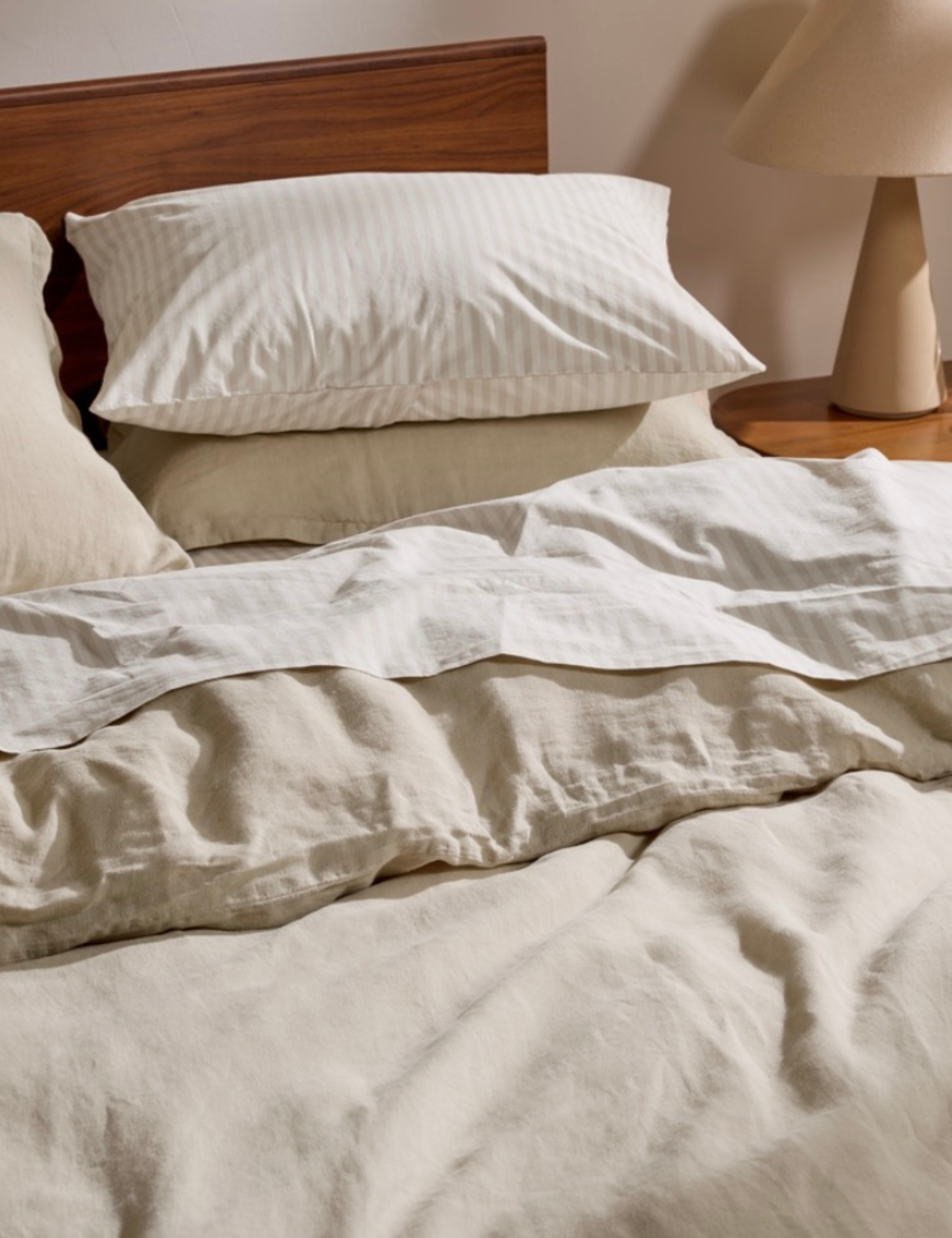
Not all cottons are created equal – and it’s not always a matter of type (e.g. Supima versus Giza), but the weave. Parachute’s percale, for example, delivers a crisp, tailored look, while brushed cotton reads noticeably softer and more buttery.
Percale
‘Percale is a plain weave with a one-over, one-under pattern – think of a simple checkerboard,’ notes Brooklinen CMO, Kelly Hannon. ‘This creates crisp, highly breathable, lightweight, and matte-finished sheets like our Classic Percale. They have a cool, smooth feel, similar to a freshly pressed button-down shirt. Percale sheets are perfect for hot sleepers, but they do tend to wrinkle easily and may feel a bit stiff at first. Don’t worry, they soften beautifully after a few washes.’
Sateen
‘Sateen features a four-over, one-under weave, which means more threads sit on the surface of the fabric,’ Kelly continues. ‘This results in a silky-smooth, subtly shiny finish, like you’ll find in our Luxe Sateen sheets. They drape beautifully and feel ultra-soft, making them ideal for year-round use. However, they can feel a bit too warm for those who sleep very hot.’
Percale vs. Sateen
‘The real difference between percale and sateen comes down to weave. Percale is crisp, cool, and matte, while sateen is silky, smooth, and lustrous. Both are made with the same high-quality cotton, but they offer two very different sleep experiences,’ adds Amy Hoban.
Flannel
When it comes to cold-weather picks, flannel consistently rises to the top. ‘Flannel is a go-to for winter,’ says Kelly Hannon. ‘It’s typically made with a plain or twill weave and then brushed on one or both sides to create that soft, fuzzy surface we all love. It’s super cozy and insulating, but not ideal for hot sleepers. Flannel can also be prone to shedding and pilling with frequent use.’
Jersey
And for hot weather, I say it’s jersey. ‘Jersey is a knit fabric, which gives these types of sheets a distinct feel and stretch. It’s the same type of knit that is used for your favorite t-shirt, and these sheets are stretchy, soft, and cozy,’ notes LUXOME's Tandy Avery. ‘A jersey sheet also resists wrinkles, but it can be prone to pilling. The casual t-shirt-like look may not be for everyone, but these sheets offer a comfy sleep, and they tend to be more budget-friendly than other sheets.’
Sheet Types

Just because you can’t see your fitted sheet from across the room doesn’t mean it’s any less important – it’s arguably the layer you feel the most.
The fitted sheet (the one that hugs the mattress tight) is your foundation. ‘Fitted sheets need to match your mattress size exactly,’ says Amy Hoban, Chief Creative Officer at Parachute, noting that this is the sheet where precision matters. A quality fitted sheet will stay put, with elastic that won’t give out over time.
Flat sheets are more forgiving – so much so that some people skip them entirely and sleep straight under the duvet. When used, they drape over the bed like a tablecloth. Tuck them for a crisp, hotel-like finish (and to stop shifting at night), or leave them loose in warmer months.
A sheet set will usually cover your bases: fitted sheet, flat sheet, and pillowcases (two for larger sizes, one for a twin). Duvet covers are often separate – those are typically sold as part of a bed sheet ‘bundle,’ so check the description to know exactly what’s included.
Bed Size & Depth
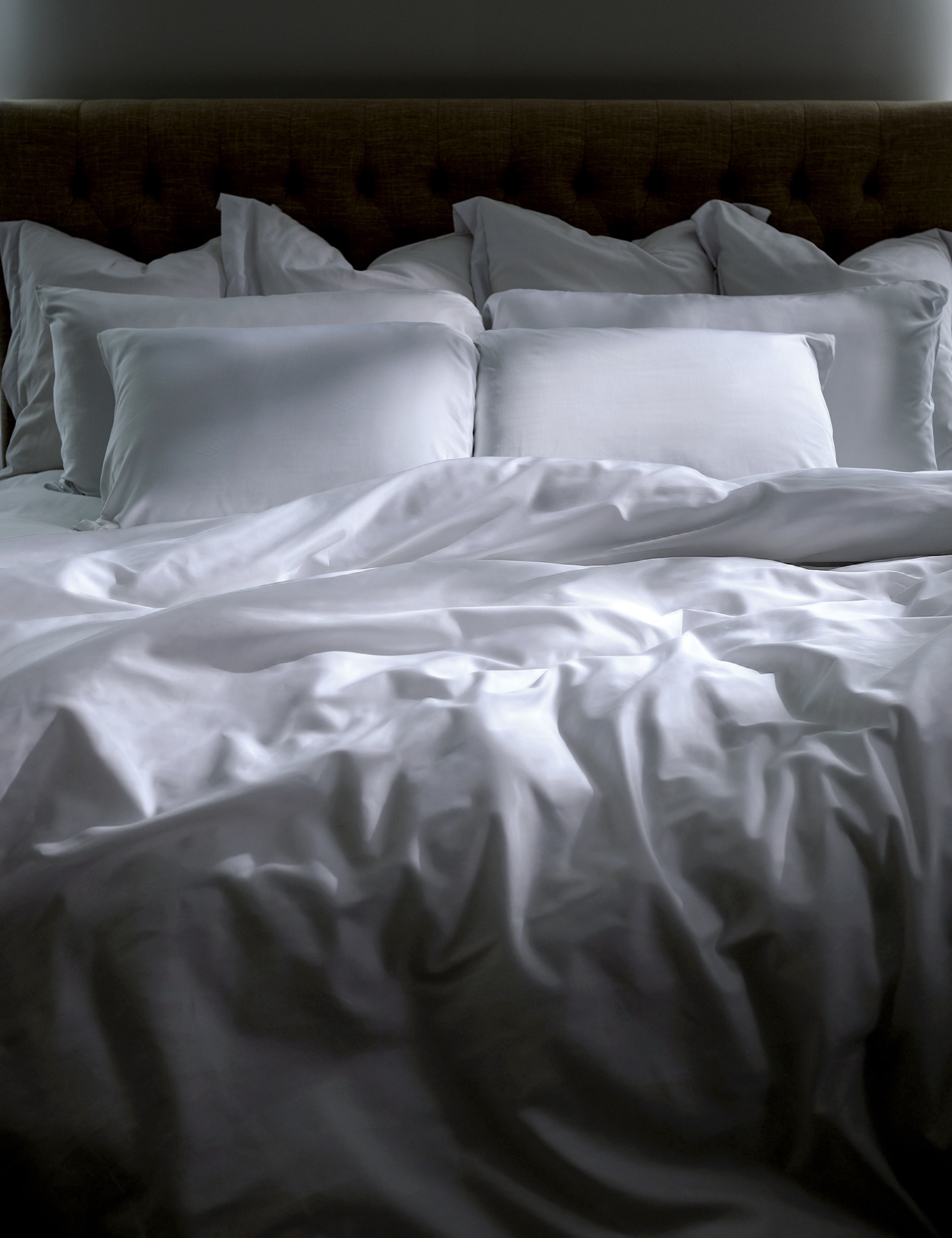
Unlike a blazer sized up for slouch, bedding is one arena where proper fit actually matters.
What size is the bed you’re dressing? You probably know your Queens from your Kings, but the specifics matter. ‘The very first thing you’ll want to know is the size of your mattress – this one’s non-negotiable,’ says Kelly Hannon, Chief Merchandising Officer at Brooklinen. ‘Standard mattress sizes include Twin, Twin XL, Full, Queen, King, and California King. Most bed sheets are made to fit these specific sizes, so using a queen-sized fitted sheet on a full mattress, for example, would be too loose.’
To keep things sharp, match your sheets to the mattress exactly. ‘We recommend purchasing both your fitted and flat sheets in the exact size that matches your mattress,’ Kelly continues. ‘Duvet covers, on the other hand, are often labeled as ‘Queen/Full’ because they’re designed to fit both sizes.’
But don't ignore mattress depth either, which is arguably just as important. ‘If you have a taller mattress, opt for deep-pocket sheets,’ advises Parachute's Amy Hoban. For toppers – duvet covers, quilts, or top sheets – a little extra length is less a problem and more a design opportunity, adding drape and drama to the bed.
Color & Style
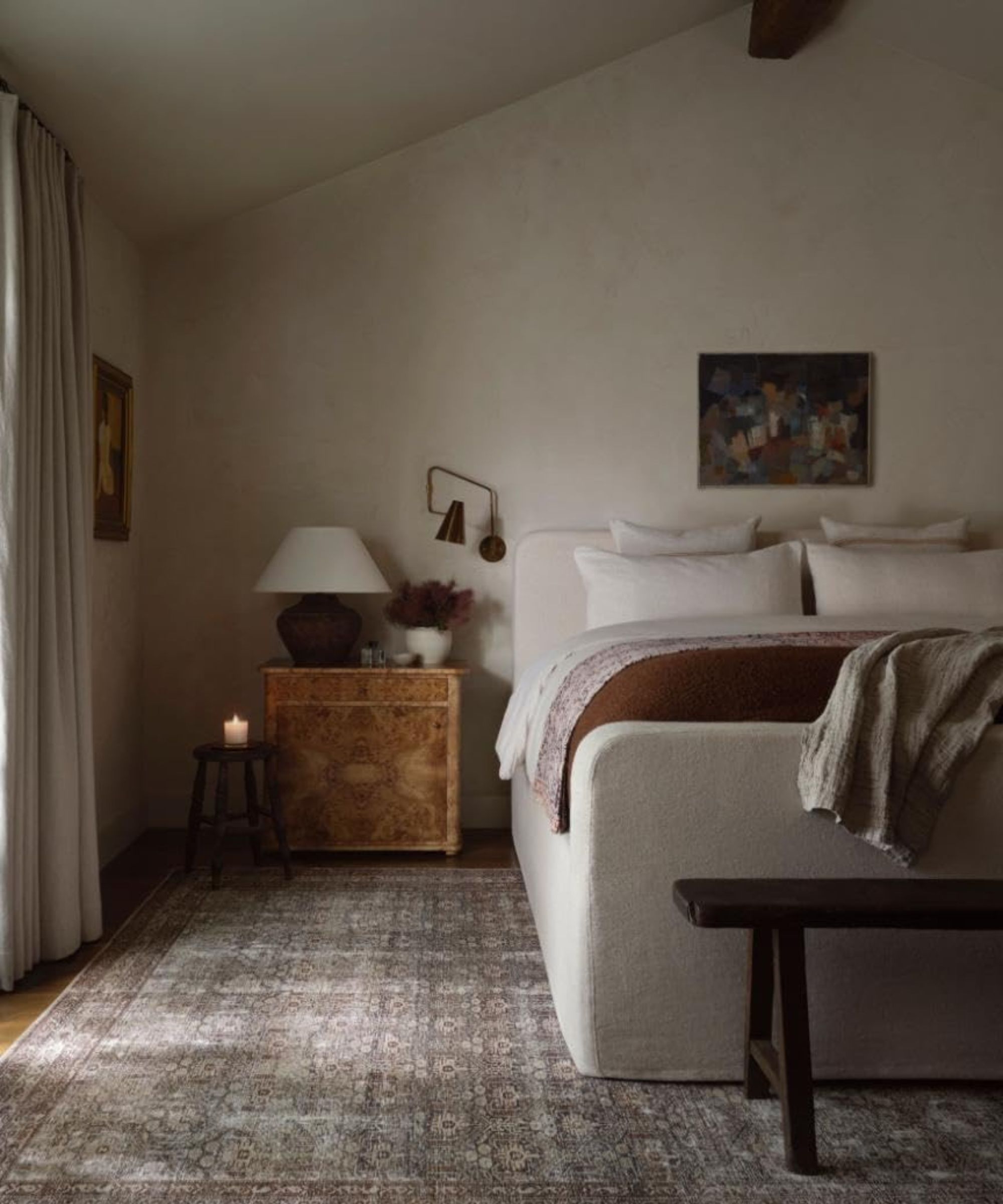
White bed sheets remain a classic, but they’re no longer the rule. This year, bedscapes are getting more expressive, animated with patterned sheets and the occasional punch of color.
Material and weave might dictate the bird’s-eye view – silk or sateen for polish, linen or cotton for something more nonchalant and effortless – but bed sheet color and pattern do the heavy lifting when it comes to mood. ‘Color and pattern set the tone,’ notes Lori Miller, President of LGC Interior Design. ‘Light palettes make a room feel airy and fresh, while darker shades add drama and coziness,’ she says.
‘Many experts are moving away from pure white sheets because they can feel stark (and show stains easily),’ Lori continues. ‘Instead, think soft neutrals, muted pastels, or seasonal tones – warm terracotta or deep green in fall, breezy blues or blush in spring. Patterned sheets can add personality, but usually work best when balanced with solid bedding layers.’

Not your grandmother’s florals, though we wouldn’t mind borrowing from her original set. Vintage-inspired botanicals are having a moment, best balanced with simpler layers elsewhere.
Speaking of charm, if you’ve noticed a certain revival of ‘grandma florals,’ you’re not imagining it. There's been a return to traditional prints and decor across the world of interiors, and that's touched bed linen too. Disty floral prints layered with larger format designs will create a cozy setup that's perfect for fall and winter. I would always recommend adding a solid color to the mix with a blanket or your throw pillows to break up the print.
You can never go wrong with a set of striped sheets, either. I have two in my rotation, one for spring and summer, which is a classic blue and white (these Cooling Cotton Percale Core Sheet Set from Brooklinen are the perfect summer stripe set), and one for the winter months in a soft cream and pale brown. Stripes actually layer nicely with florals, too, if you are after that on-trend mismatched look.

Matching bedding? How passé. In 2026, the more personality – or pattern-drenching prowess – you show, the chicer your bedscape reads.
What’s next in bed sheets for 2026 feels less about trends and more about personality. After years of pared-back minimalism, print is creeping back into the bedroom. A striped fitted sheet (á la the patterned fitted sheet trend) peeking out beneath a solid duvet, for instance, reads as an insider move. Even brands historically loyal to solids, like Parachute and Cozy Earth, are experimenting with patterns, evidenced by recent drops of yarn-dyed and sun-washed cotton stripes.
If you’re building a bed from scratch, think in layers: a base of stripes for depth, solids in earth-coded shades for grounding, and silk pillowcases for contrast. Matchy-matchy bed sheets are officially on the outs.
As Kelly Hannon says, 'The key is thinking about balance. Start with your room’s existing elements – wall colors, furniture, lighting – and let the bedding either complement or artfully contrast them. Sheets don’t have to match everything, but they should feel intentional in the palette.’
How Much Should You Spend on Bed Sheets?
Budget matters, as do expectations. Egyptian cotton might not be essential for a guest bed, while your own sheets should absolutely hold up night after night.
According to NYC-based interior designer Lori Miller, budget-friendly sheets run about $50–$100 per set – think Walmart, Target, or Amazon basics. ‘Look for cotton–poly blends or lower-thread-count cotton. Decent for guest rooms or short-term use,’ Lori says.
Mid-range sheets sit around $100–$250. This is where you’ll find long-staple cotton, bamboo, or Tencel options – and some (not all) of Brooklinen’s range. ‘This is the sweet spot for quality and value – soft, breathable, and durable without being overpriced,’ Lori explains.
Luxury sheets start at $250+, climbing into the thousands for premium Egyptian or Supima cotton, linen, or custom weaves. ‘At this price point, you’re paying for craftsmanship and longevity. Beyond $500, you’re often paying for the brand name as much as the fabric and artisan work,’ Lori adds.
How We Test Bed Sheets
How we test bedsheets is much like if we were buying them ourselves. This means lingering a little too long in store, touching and feeling the floor samples, if I’m unable to get my hands on a personal sample for review. But often, the test comes in my own apartment, testing bed sheets the only way I know how – by sleeping on them. Every set gets at least a week on my own bed to break in, followed by a proper wash to see how it holds up. The chosen ones will make reappearances.
If I am testing sheets firsthand, I won't read reviews until I have made up my own mind. I try to tune out the internet chatter. My opinions come from experience. If a set makes it here, it’s because it’s passed every test, from first sleep to final wash.
Design expertise in your inbox – from inspiring decorating ideas and beautiful celebrity homes to practical gardening advice and shopping round-ups.

Julia Demer is a New York–based Style Editor at Homes & Gardens with a sharp eye for where fashion meets interiors. Having cut her teeth at L’Officiel USA and The Row before pivoting into homes, she believes great style is universal – whether it’s a perfect outfit, a stunning room, or the ultimate set of sheets. Passionate about art, travel, and pop culture, Julia brings a global, insider perspective to every story.
